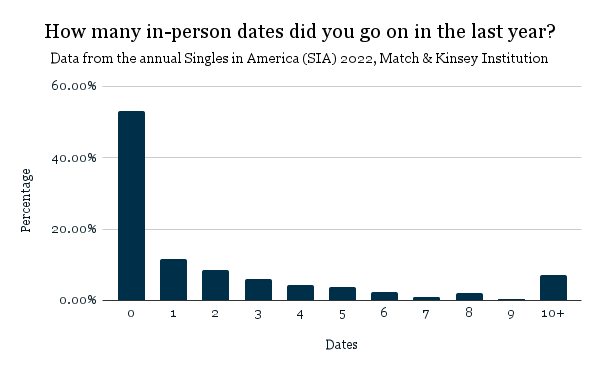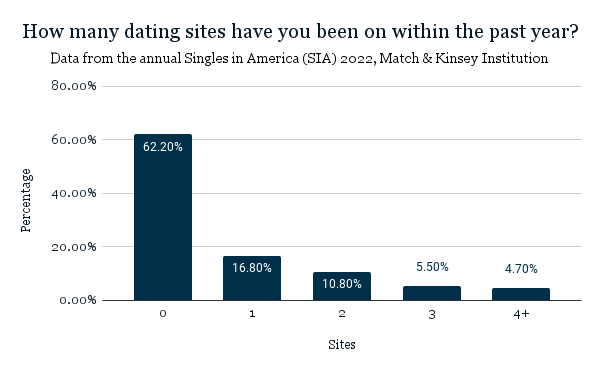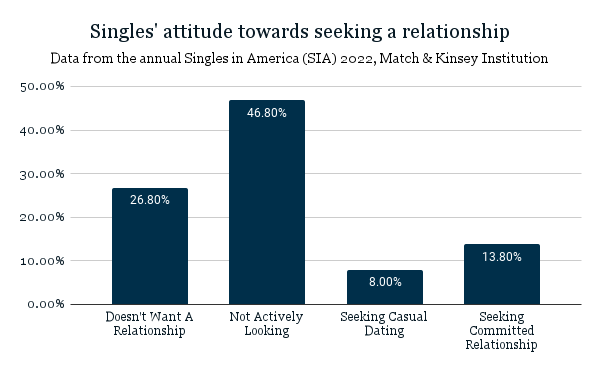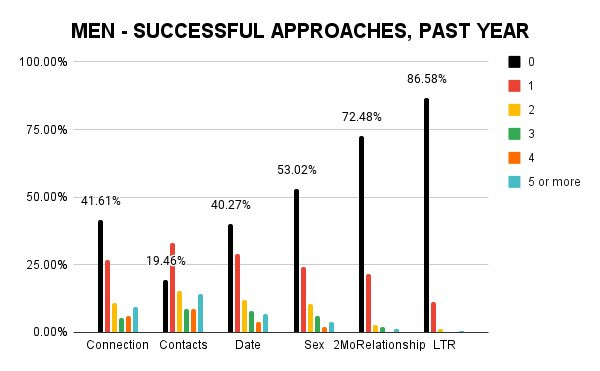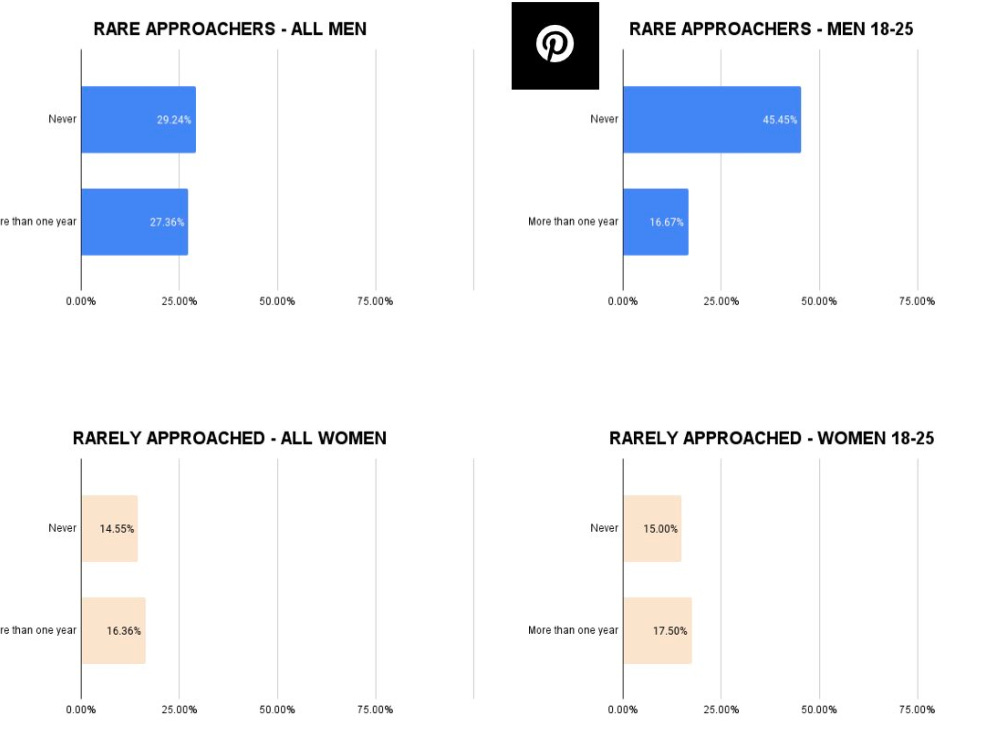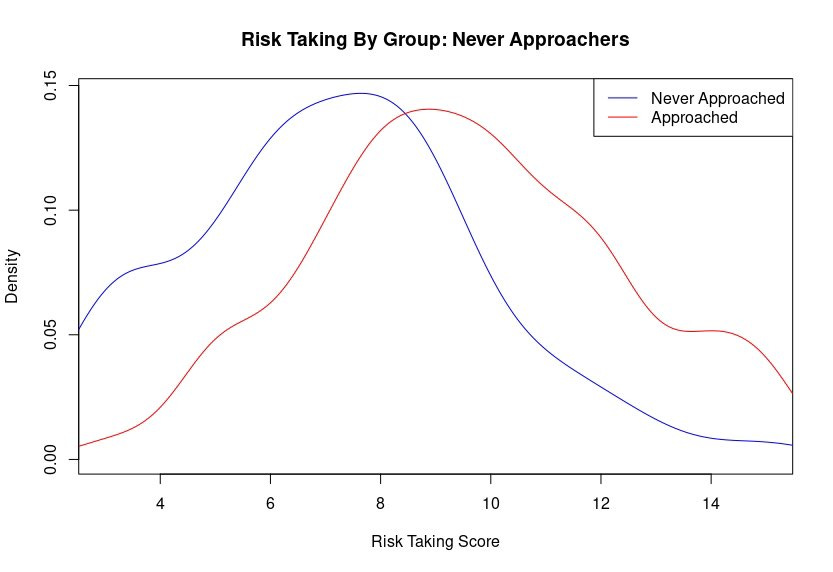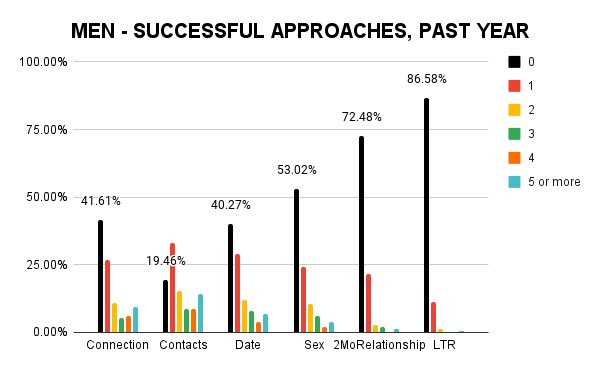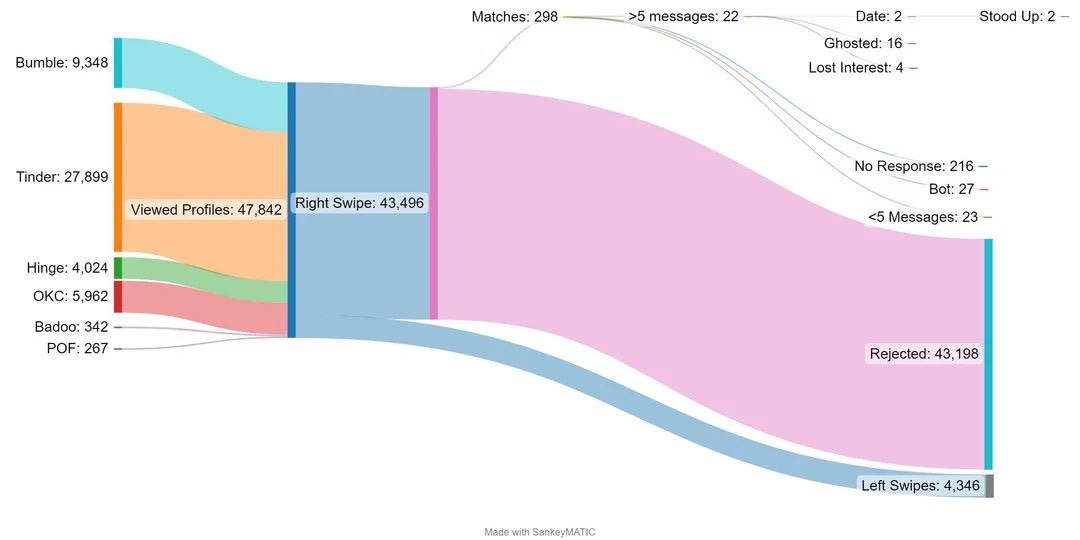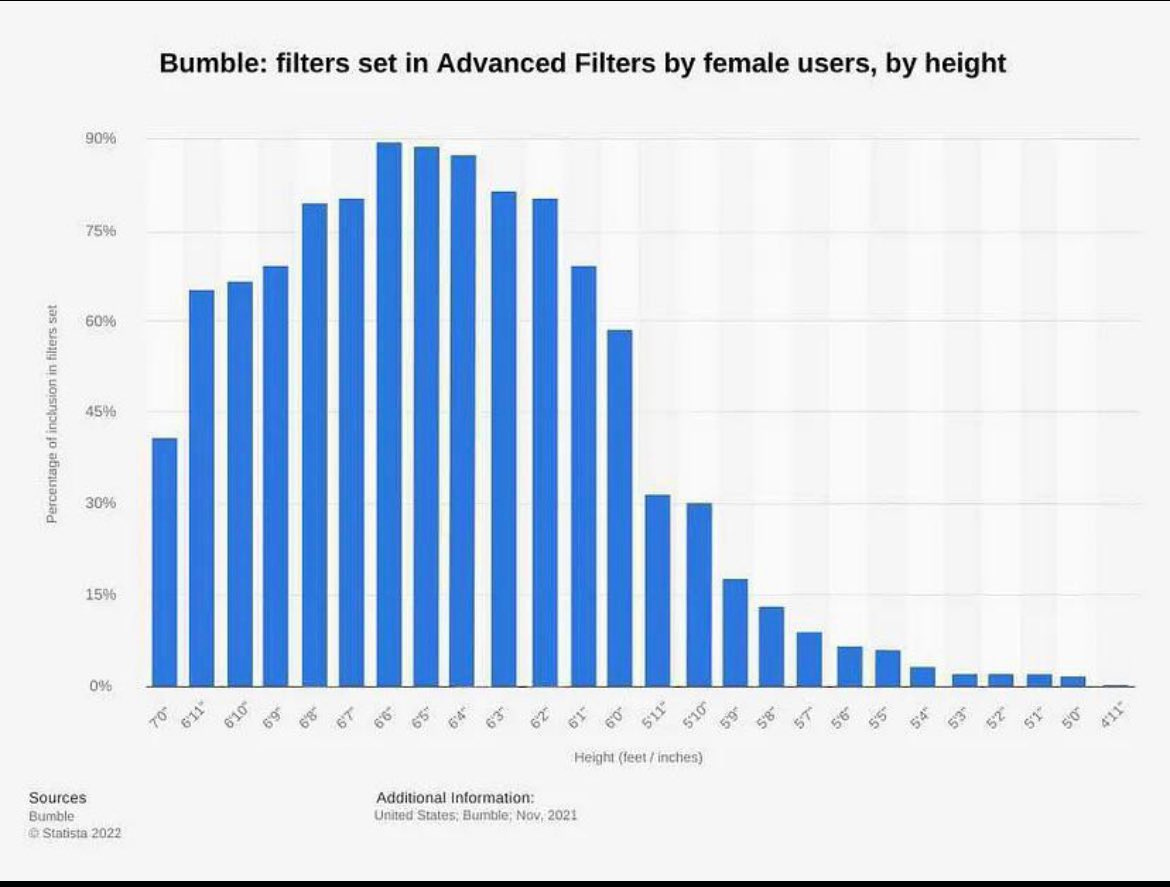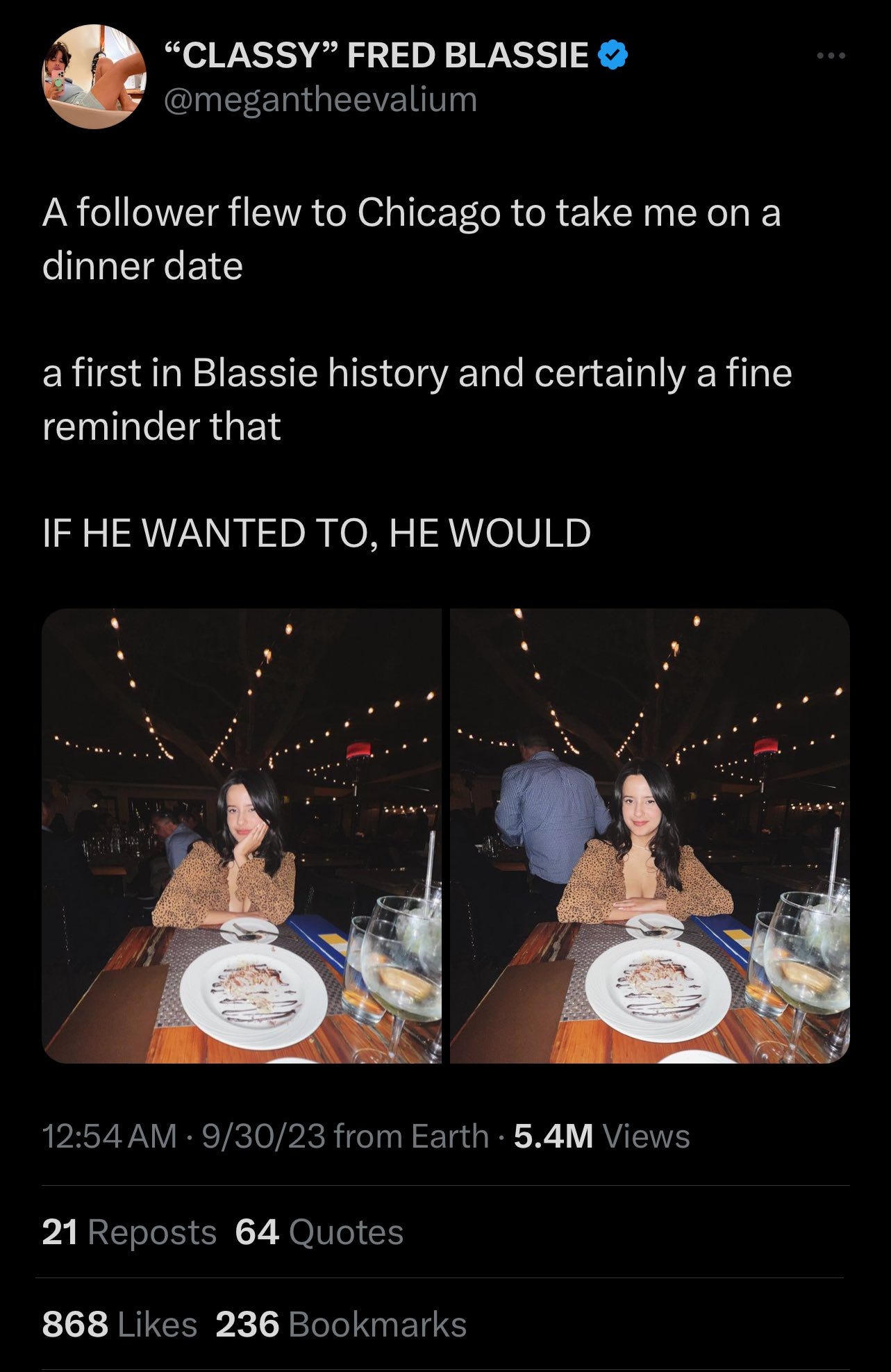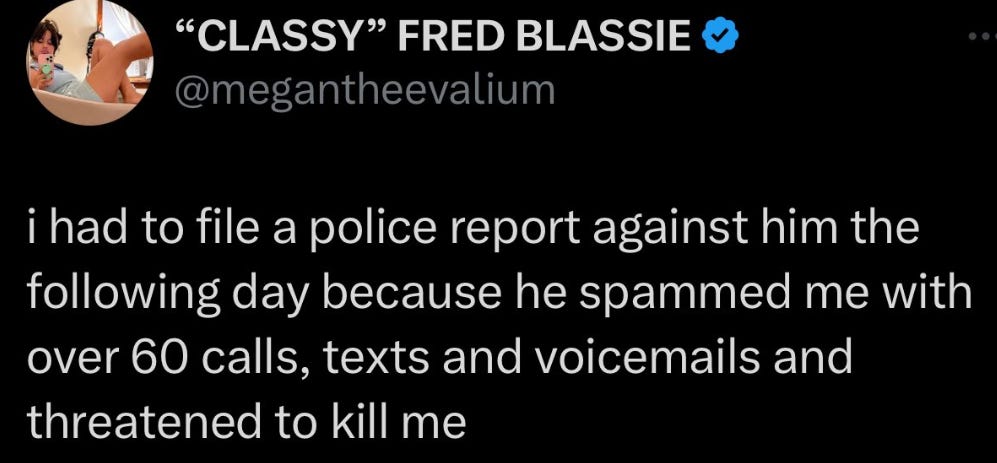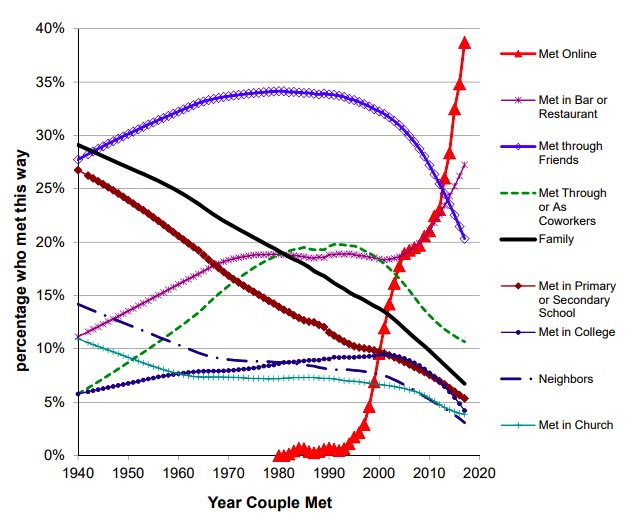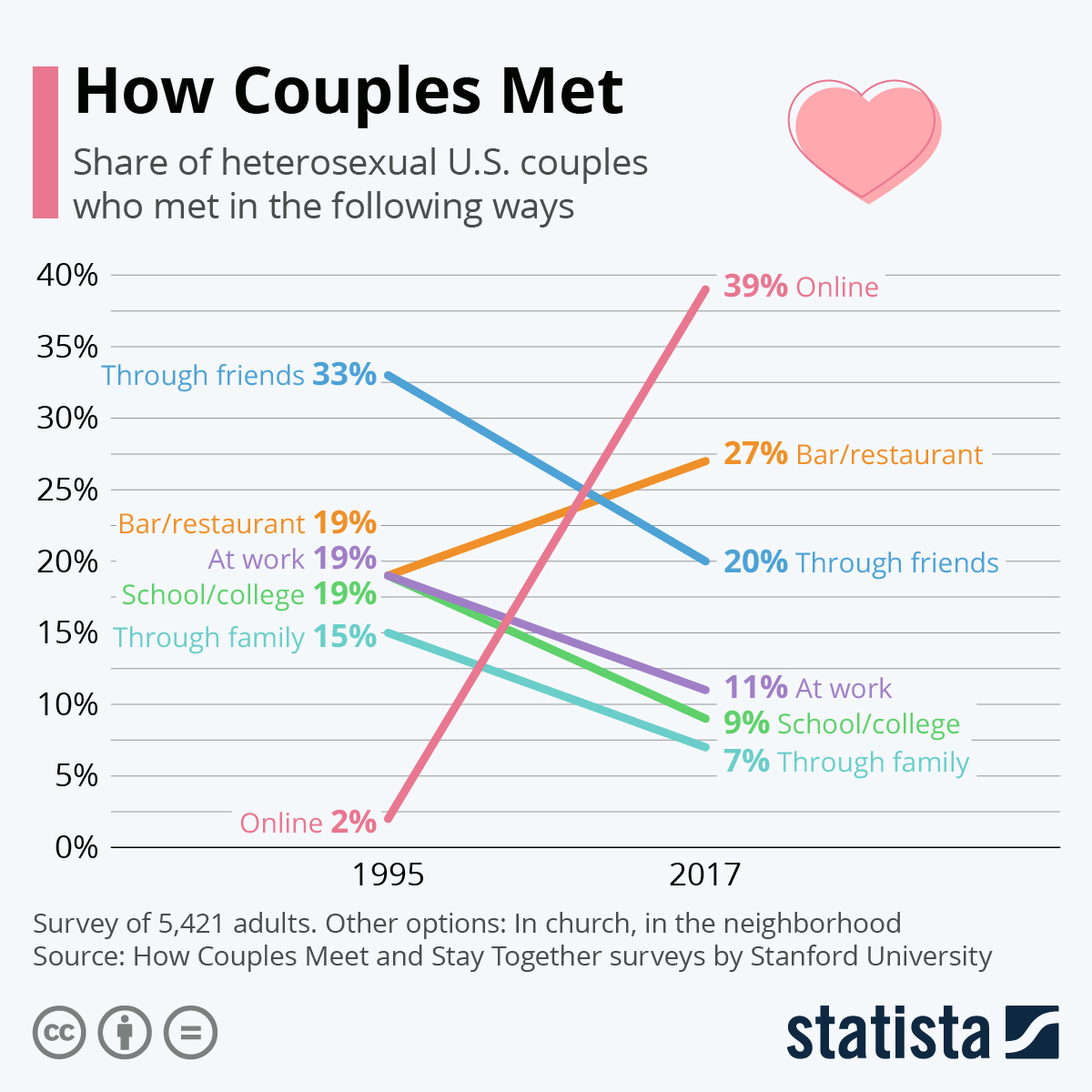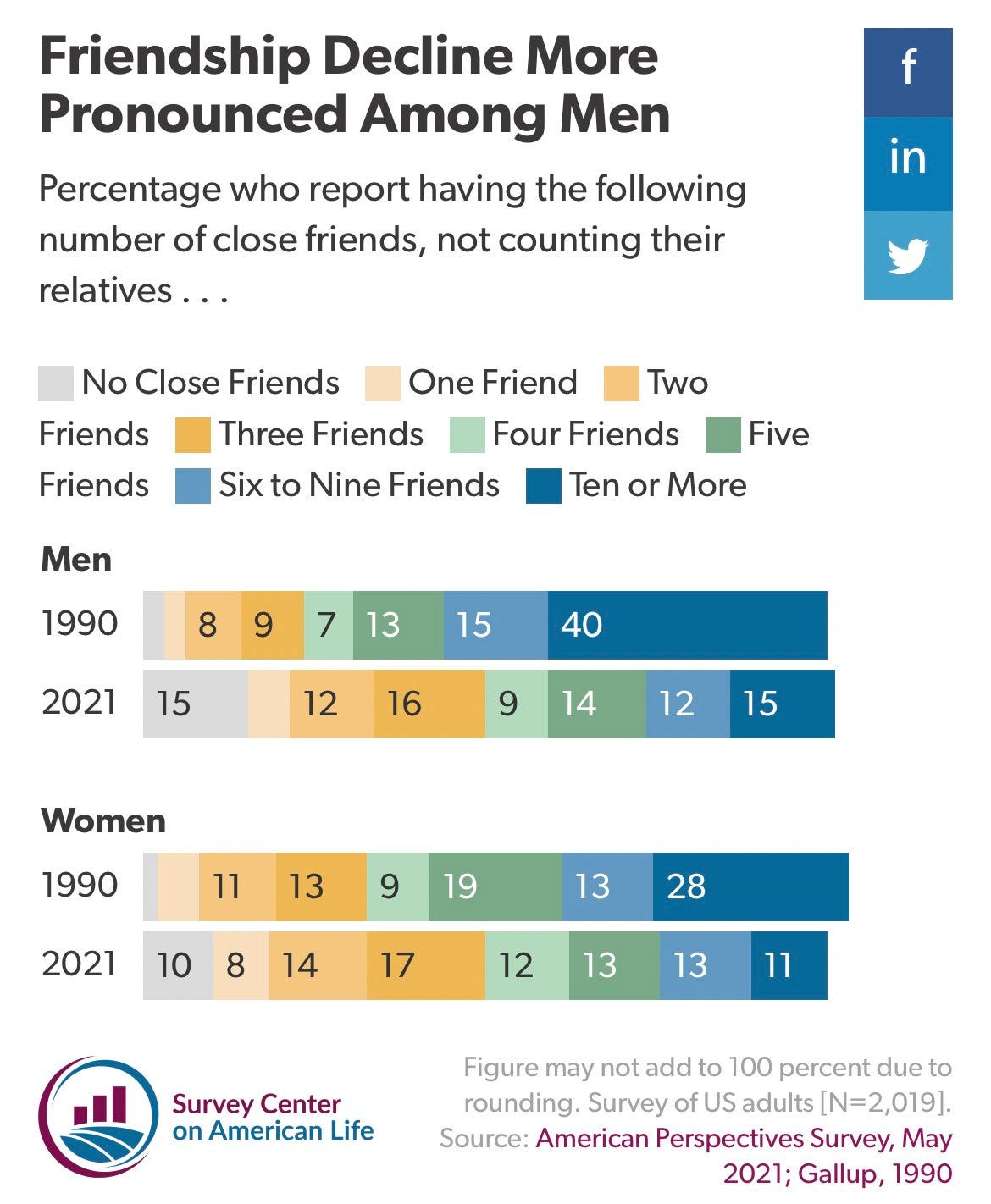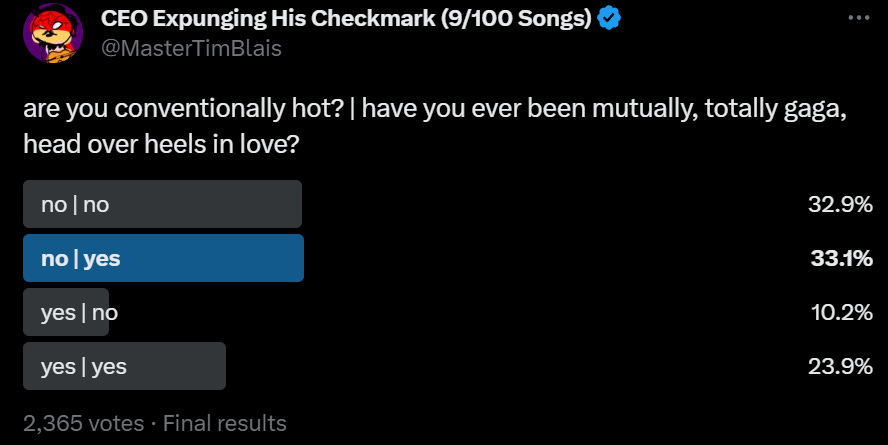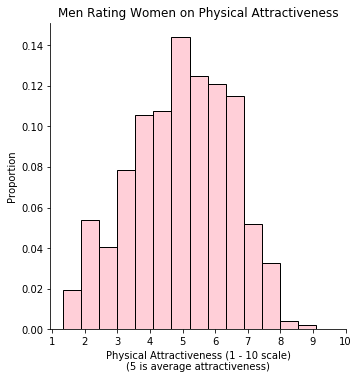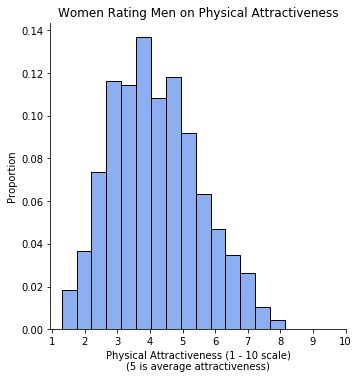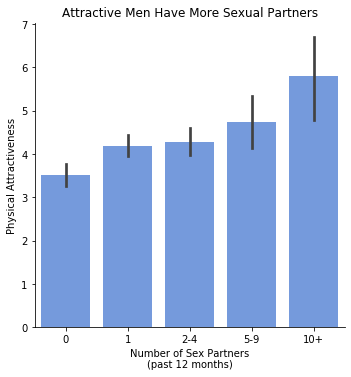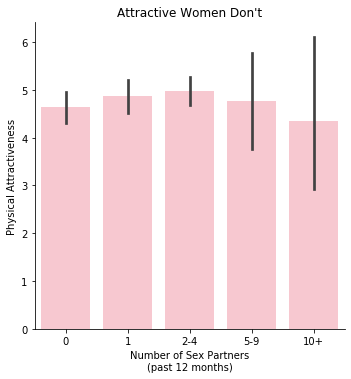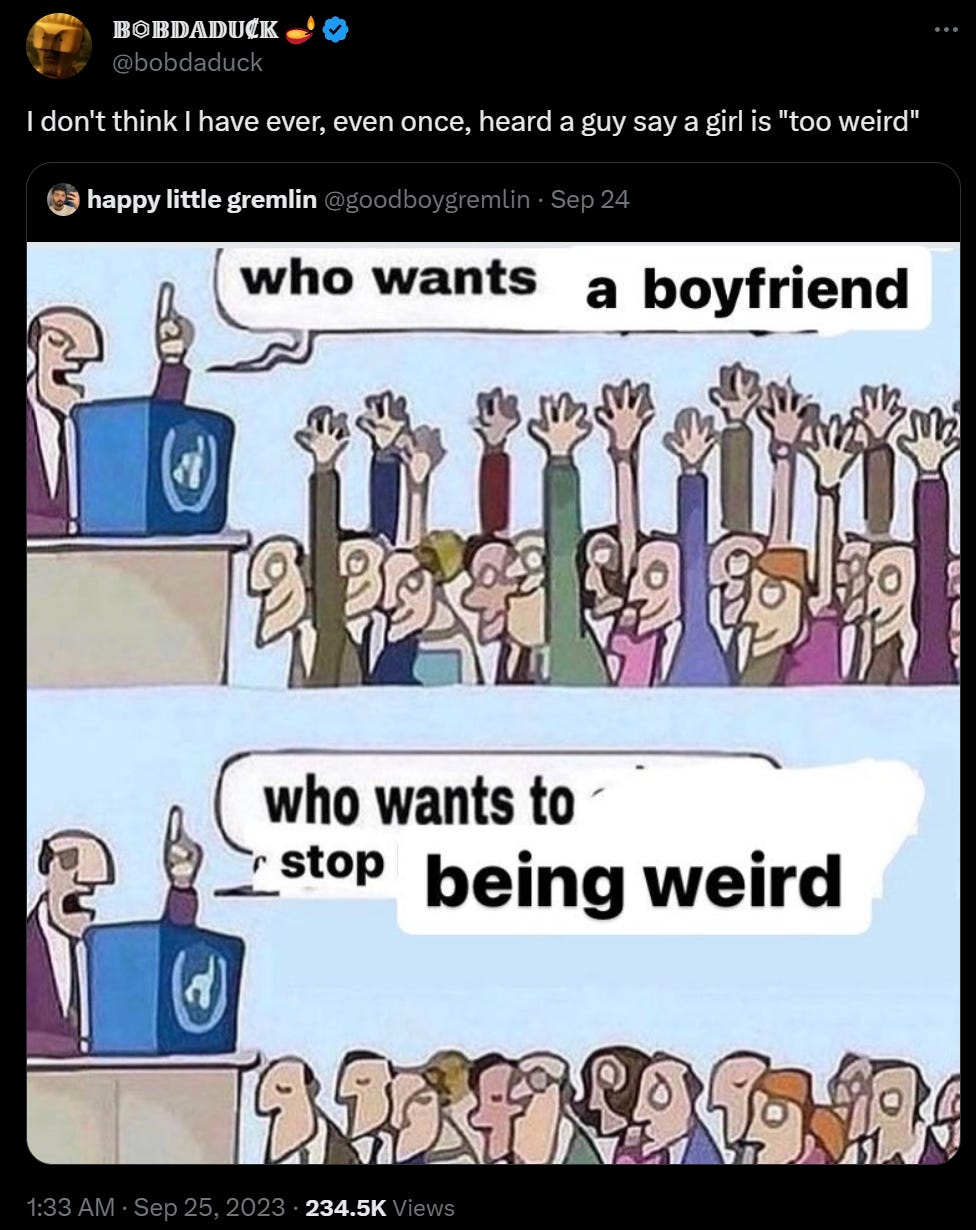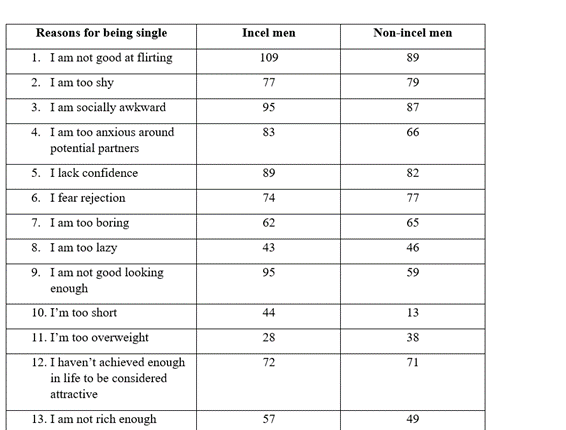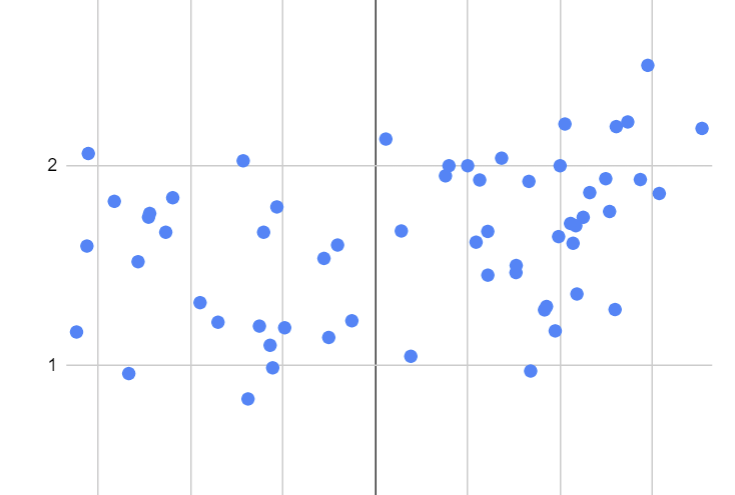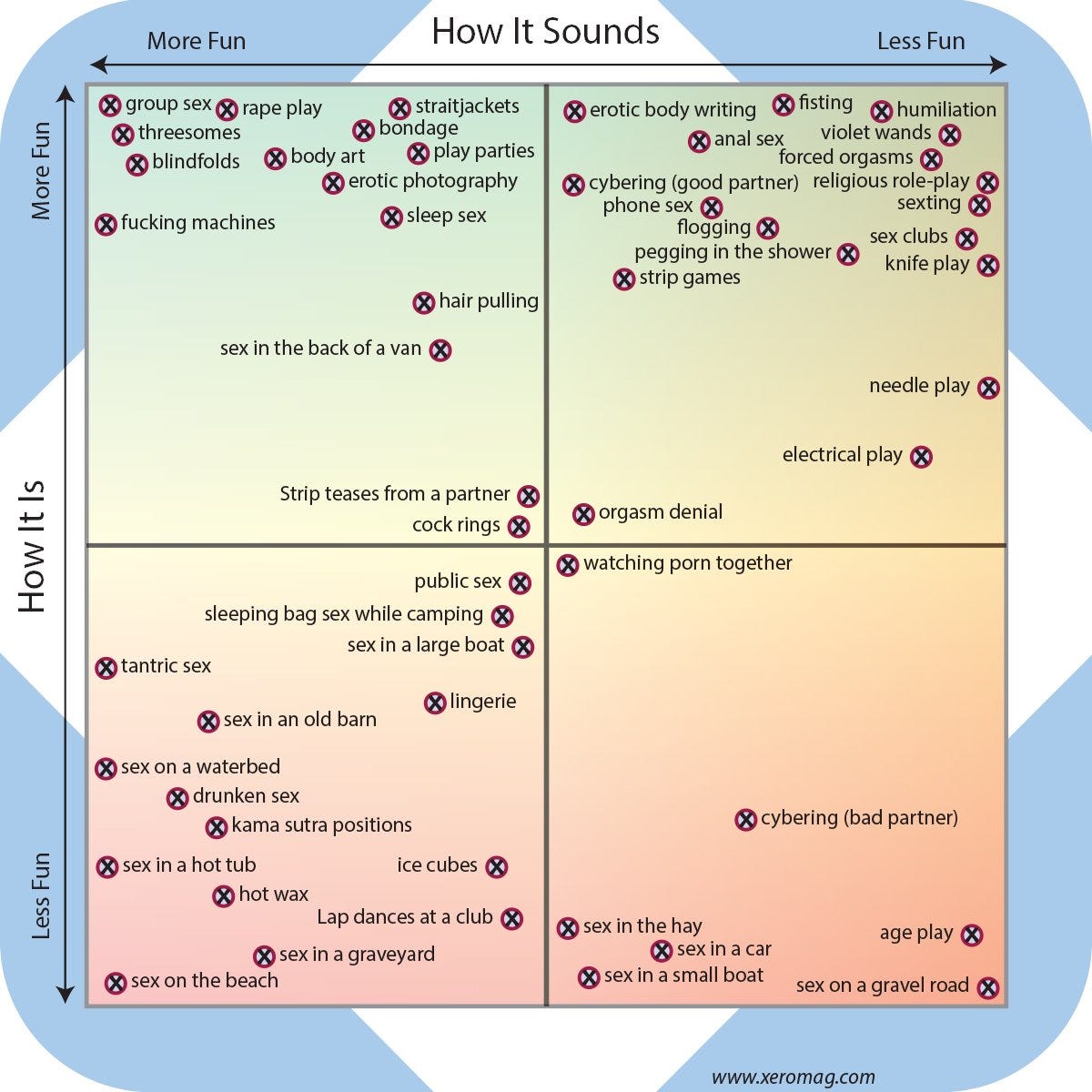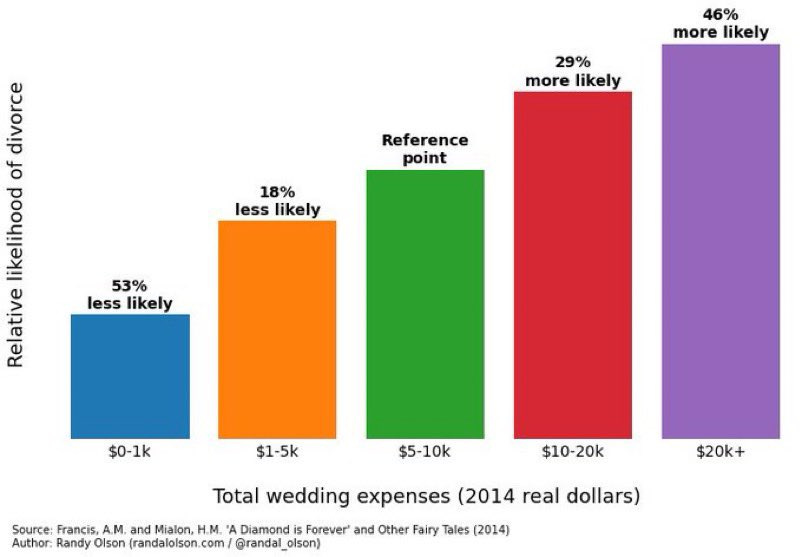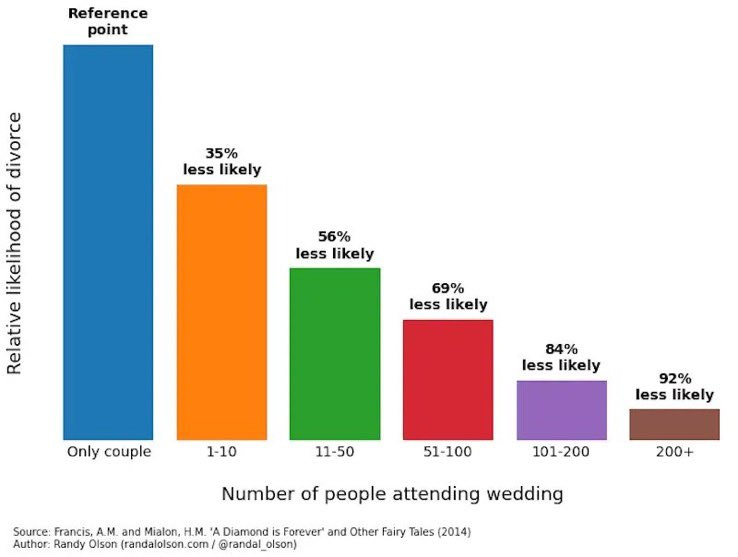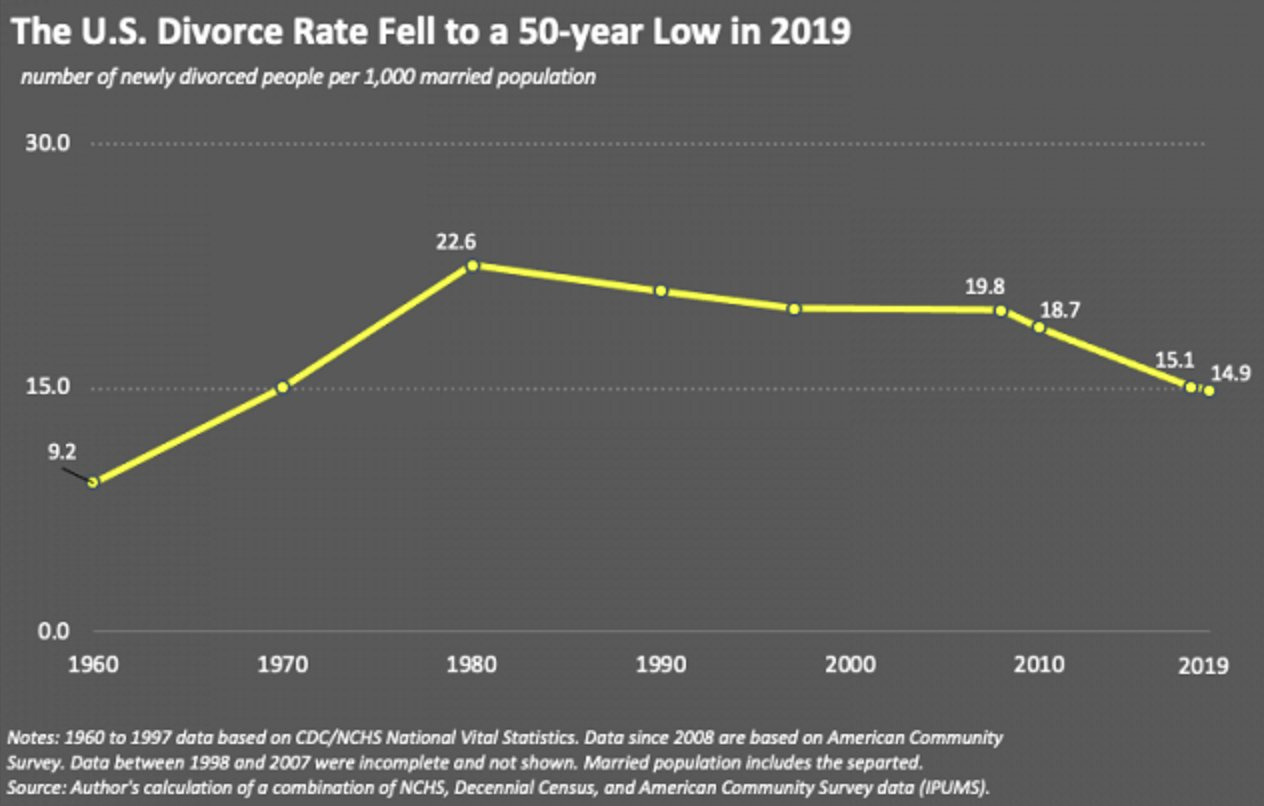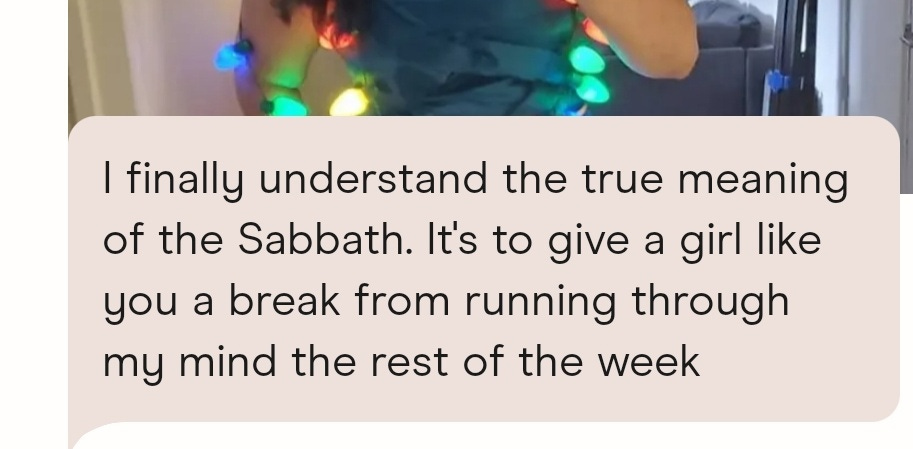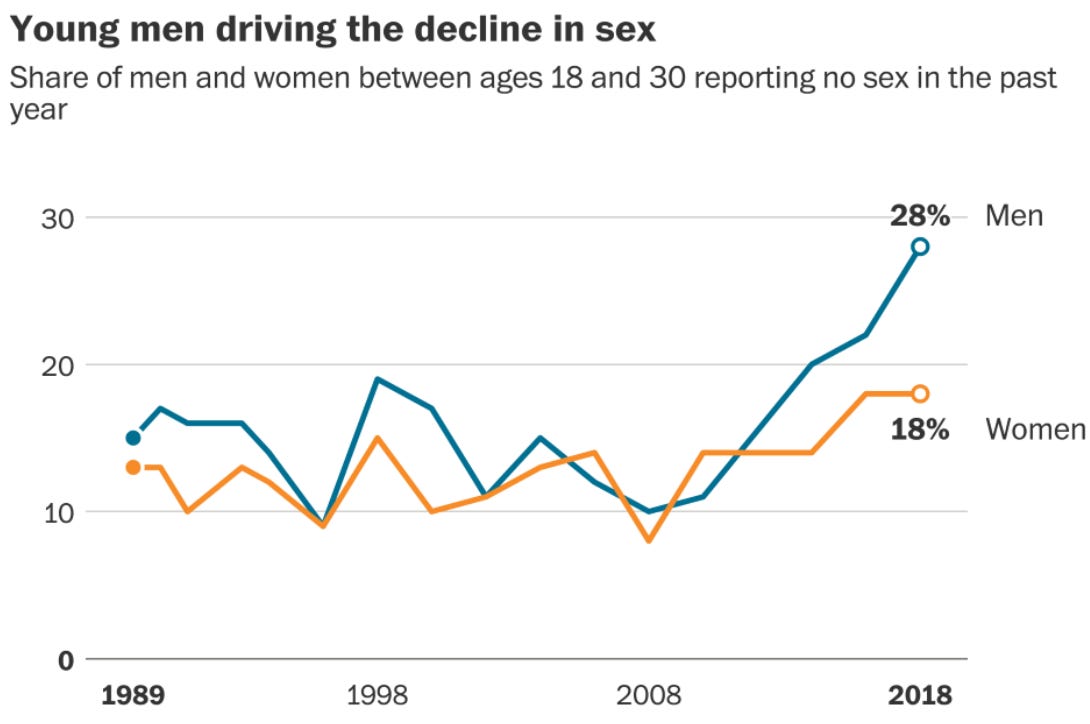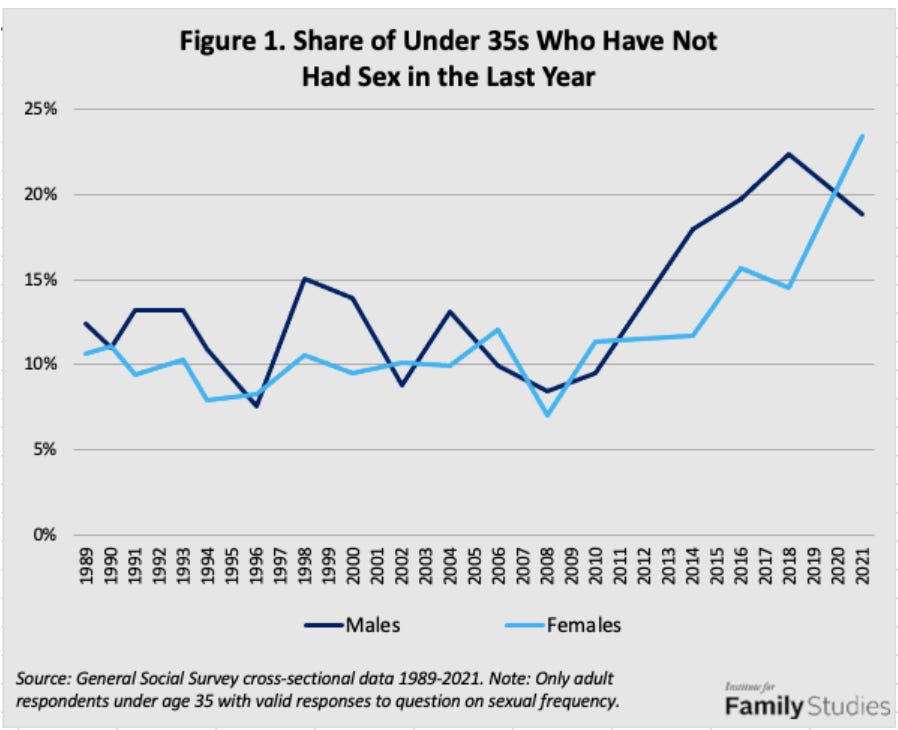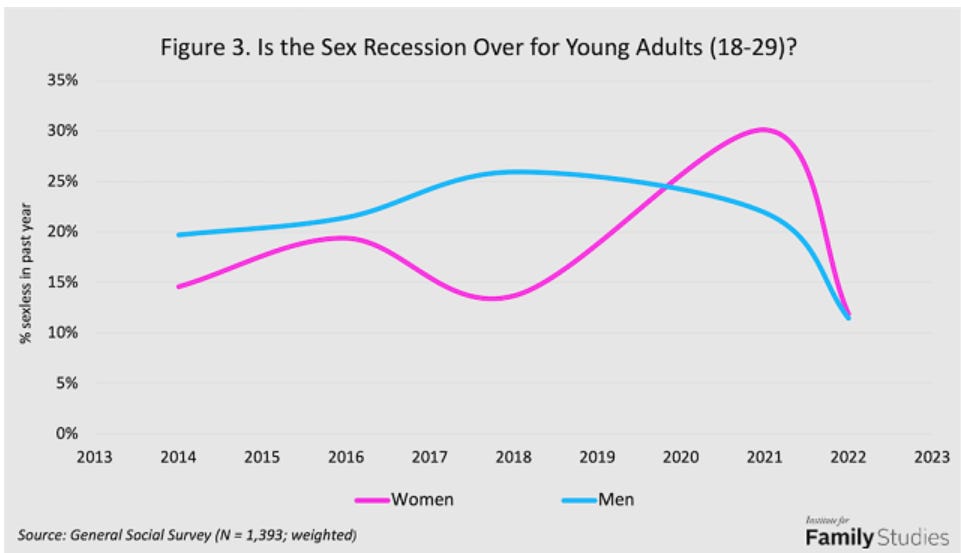Developments around relationships and dating have a relatively small speed premium, also there are once again enough of them for a full post.
The first speculated on why you’re still single. We failed to settle the issue. A lot of you are indeed still single. So the debate continues.
What does it mean to not even be trying?
It does not only mean the things Alexander pointed us to last time, like 62% of singles being on zero dating apps, and a majority of singles having gone on zero dates in the past year, and a large majority not actively looking for a relationship. Here are those graphs again:
It also means things such as literally never approaching a woman in person.
Alexander (Keeper.ai): Why are so many young men single? Are they excluded from a brutal mating market by society? Probably not: 45% of men age 18-25 [and 29% of all men per the graph] have never approached a woman in person. These men are significantly more risk-averse than those men who do approach women.
Not never in the last year. Never as in never. Not once.
For the last year it’s over 60% across the board.
Alexander: What about men who do approach? Most are successful to some extent. 68% reported making at least one successful romantic connection.
Alexander, from later: A few people asked what approach means here. I asked: When was the last time you asked a woman in person for a date on the street/in a bar or club/at school or class/at work/at a hobby or social gathering / other location. Common meeting places and not necessarily strangers.]
This is actually a whitepill: it isn’t the powerful forces of society at large that explain young male singledom. It’s much more mundane. Young men are simply not trying.
Robin Hanson: I gotta blame women as much as men for [the graphs below].
Alexander: What about men who do approach? Most are successful to some extent. 68% reported making at least one successful romantic connection.
If you want to date women you are going to have to, at some point, go talk to one of them. Often it works, at least somewhat. 80% got at least one contact. That can be very good even if it does not go anywhere romantically. Americans nowadays could really use Platonic friends as well. Almost half of approachers got laid, 28% got a two month relationship out of it.
13% got a long term one they wouldn’t have otherwise had. That is not a huge conversion rate, but notice how often this is from only one first date. The implied odds from a series of first dates (until an LTR candidate is found) are much, much better.
It certainly appears to be true, as Robin Hanson is presumably referring to, that women more often these days choose not to make this easy, ramping up the fear and cost of rejection by choosing to deliberately inflict social or emotional costs as part of the rejection, as opposed to not doing that or even doing the opposite. The old situation where women had legitimate fears forcing them to do the opposite was quite bad. But deliberately choosing to make things harder and more painful is not going to match up incentives the way anyone would like.
Alexander goes on to notice that high internal locus of control (LoC) is associated with dating success, although I am sure this is bidirectional causation.
Alexander: Some people will read this and say “but I’m in the bottom 1% of men and I have approached a thousand women, no bites.” OK – you’re a special case. But your situation is not why 50% of Zoomers are single.
The selection effects are the obvious objection. Obviously those who choose to not approach would have somewhat worse odds. How strong are these and other selection effects? There is certainly a very strong correlation between actually approaching and counterfactual success rate of the marginal approach, for many obvious reasons.
“Men are afraid of losing their job / me too / legal consequences / etc.”
1. Most men cited fear of rejection.
2. This is risk aversion. You live in the same environment as everyone else. You’re afraid to approach; other men are not.
It is not only risk aversion. It is also anticipation of consistent failure. Which sucks and is self-fulfilling and self-reinforcing. Even if the only thing you have to fear is fear itself, failure increases your fear, so you should have some additional fear of failure.
It is still worth emphasizing that as long as you use caution where you work and with those who are central to your social circles, and treat everyone involved well or even not too badly, the risks other than the sting rejection are statistically minimal. It’s all about rejection.
Which, to be clear, sucks. But it sucks so much less than it is given credit for.
Auudrey Horne: there’s a type of Christian girl i know who never gave herself the chance of finding love, but wrapped herself up in a protective nest of tea, cats, crafts and YA fiction.. never dating or trying to date, and not bitter about it either.
Miri Vinnie: This is probably the most common type of never-married woman among the over-35 college educated, in my experience Usually very sweet and thoughtful. View marriage as something that could be nice, but stubbornly disinterested in compromising their introverted lifestyle to find it
FrankenMishra: gotta start putting my phone number into paperbacks in the SFF section at used bookstores.
In harder situations people very much do try harder. Kent Hendricks learned this (among 51 other things) in 2023:
Women post sexier pictures of themselves on Instagram in areas of greater income inequality. This is because these areas have fewer high status men to date or marry, thus greater intrasexual competition. All else being equal, for every one standard deviation increase in income inequality in a city, the number of sexy selfies goes up by 31-34%. (“Income inequality not gender inequality positively covaries with female sexualization on social media”)
I would clarify the mechanism. It is not that there are fewer high status men. It is literally that there is greater inequality between the perceived value of men, and also that the returns to finding the right man look better compared to the value of one’s own marginal production otherwise. This in turn drives up returns to sexiness.
I wrote recently about the latest ‘romance companion’ AI, Digi.ai, which claims to be ‘the future of romance companionship.’ In anything like its current state, it very clearly either is nothing of the sort.
If this is the future, such companions have no future. Not that there seems to be anything much better out there as of yet. It has been almost a year since the AI news turned into a torrent, and no one has been able to deliver a reasonable product on any level.
As far as I’ve heard? They’re no good for actual companionship. They’re no good for interesting conversation. They’re no good for practice and training. They’re no good for sexting or porn. No virtual or augmented reality. Nothing.
Regular generative AI, like GPT-4 or Claude-2, are highly useful. Character.ai seems useful, at least to its users, although I do not see the appeal. This isn’t useful. Not yet.
Which, given how predatory every version has been so far, seems like a good thing. I continue to hold out hope that eventually life-affirming, positive versions of such things will become available. For now, there is insufficient power to even try.
We also have seen remarkably little progress in AI helping you in your quest in other ways. Where are all the tools to help you navigate dating sites and give you a better interface or user experience? To improve your profile? To help provide context to help you evaluate others? To make sense of cryptic text messages and provide reads on the situation? To help you plan dates? To alert you if and only if incoming messages and matches are worth your time? To automatically filter out bad matches or those who don’t pass certain filters you’ve selected? To provide practice and plausible responses, or provide feedback?
I consider everything on the above list as clearly ethical and practical AI applications if done responsibly. It’s time to build.
Last time there was also talk of some options that were more full service, some of which were also decidedly less ethical. If you lacked qualms about it, there is no reason you could not have an AI do everything for you until such time as an in-person date was arranged, then text you the details, as some people are clearly working on.
My current thinking about the ethical lines on this are:
-
The key rule is that it is never acceptable to make someone talk to an AI thinking they are talking to a human. If you are having your bot talk to potential dates without you in the loop, you must clearly disclose to them that you are doing this.
-
You also shouldn’t be spamming people and wasting their time, even with an initial email, unless you have a clear indication of interest. If you are going to gate your matches with a bot, your profile needs to reflect this on top of the bot identifying itself.
-
You shouldn’t hide or lie about what you are doing, so you shouldn’t do anything you wouldn’t want your dates to find out about.
That still should leave a lot of room for creativity. I am very disappointed, hackers.
What about those who report trying over and over, only to meet abject failure?
Such cases definitely exist. There are many ways to sink your chances, if you are not doing deliberate practice and looking to fix your problems then you won’t improve.
Last time we encountered this guy who analyzed four years of his online dating data.
This time around, Olivia Reingold reports in The Free Press that a lot of men are despairing of ever dating, and giving up.
As always, details are telling.
Olivia Reingold: [Jammall] says he once went six months without getting a single match on a dating app, even though he pays $30 in monthly fees between OkCupid, Bumble, and Hinge. If you count high school, when he went to the movies with a classmate, Jammall says he’s been on a total of three dates his entire life.
If he is looking at as many profiles as he can and swiping right a reasonable portion of the time, this should never happen. As a paying customer, a large portion of the women he swipes right on will see his profile. He can view hundreds of profiles a day.
So if you go even one month with zero preliminary matches, and you are neither being super selective or highly unusually ugly, you know you are doing something very wrong with your profile or your profile pictures.
Jammall could easily also be completely lost later in the process, and given lack of experience he likely is, but for this stage he can and should seek out some help and keep trying different things. Then he can try and fail at later stages, and learn.
And now, driving home from his date, it hit him like a ton of bricks: Why do I even do this at all?
He walked into his apartment near Cape Canaveral, greeted the cats, and slumped down on his couch.
“I’m so far out of the loop,” he told me he realized at the time. “Compared to my peers, who have gone out with women, and know how to interact with them, I’m too far gone. I can’t learn that stuff.”
He trails off, then adds: “I’m just not going to try anymore. It’s not worth it.”
Well, not with that attitude. Definitely not with those cats. I have it on very good authority that if you are male and want to date females, it is a bad idea to own cats. Seriously, pro tip, lose the cats. At minimum hide them from your profile.
I do not buy that his only earning $55k/year is sinking him this much. I do think his being 5”5’ is a big handicap, also makes it very important to create good photos.
The post author then signs up for a dating app as a male, sees a few obnoxious female profiles, takes them at face value as the general case and despairs. Why is that a problem? If a woman presents herself that way on a dating app, that is valuable information for all concerned, whether or not she will hold to those standards in the end.
Aella: guys this is just a signaling game. a woman demanding ridiculous things from a partner is a demonstration that she is high worth. The pickiness is performative, like a cool designer handbag that says ‘look how successful i am’. The other woman demands 6’0″? Well *Idemand 6’3″.
Don’t worry, she’s gonna settle down with a knockoff 5’9″ dude making 70k/year and develop a mythical narrative for why he’s truly the exception, really special in ways less obvious actually, so that she can convince herself she caught a fish too big for her friends.
The words being cheap talk does not stop them from also being a filter that keeps you out in a dating app even if you could survive them in physical space. But that should not much matter, because the app won’t waste your time. If you are 5’10” and the woman is filtering for 6”, or you are out of her geographic radius or short on her income requirement or anything else, my understanding is you will never see each other at all. As long as you are in an area with enough candidates, you will be fine.
Strangely, I am informed Bumble lets you pay to see the profiles that already filtered you out, perhaps so you can gather some intel or hate-look. If I was on the market, I would pay for the opposite feature. I’d pay even more to have the women filter first.
If they are not using the hard filter, and one is available, then that tells you something.
The next example of a dropout:
That’s the insecurity that keeps Santiago, a 25-year-old from Albuquerque, New Mexico, up at night. The last time he dated anyone was in 2021—but that ended when he suspected she was cheating on him. Now, with the wounds still raw, he fears he’s “not worthy” of a girlfriend anymore.
“After being depressed for so long, I feel like it’s a handicap,” says Santiago, who works at a department store and has been on one date only since his breakup. “It makes me feel like, ‘Oh, he’s damaged goods.’ ”
That sounds very much like the problem is in Santiago’s head. He thinks he is damaged goods because he felt bad because he suspected (and only suspected) his girlfriend was cheating on him and this kept him from trying to date?
So yes he is damaged goods. But only because he sees himself that way.
And then there’s the problem of not knowing how to approach a woman. He suspects his coworker might have a crush on him, and yet he worries that one wrong move and he’ll be labeled “creepy.”
…
So Santiago does nothing.
I do realize that is difficult, that it is effectively both on the guy to make the first move and also they can get massively blamed for getting it wrong. There is an art to navigating such situations, and safely learning the art of safe navigation is tricky, and you have large model uncertainty, so one will be naturally reluctant to find out where the downside risks are high. Which speaks to the need to get into lower-risk in-person situations, something Americans increasingly don’t do.
The next complaint is that the average date comes with a $159 price tag, in NYC that goes up to $230. I don’t buy it? What are you doing on these dates?
Sure, you can spend a lot on fancy drinks and dinner if you want to, but there is no need. Mostly. There is a particular type of date where that is required. But if it is required and it is financially painful for you to do, it’s a bad match anyway.
The third dropout is a man who has an ‘online friend with benefits’ who never wants to speak on the phone or meet in person, because they claim they are mute, and he doesn’t want to call them out on it and suspects they are lying and are actually a guy or something. They have known each other for 20 years and hang together online all day.
Well, this person also refuses to use a webcam. Presumably there is a reason.
Once again this feels like a choice. He says he’d be losing a close friend, but it’s not a long term plan to have a friend like this if it never goes anywhere and also cuts off other possibilities.
All three concrete examples are guys making very clear and fixable mistakes. The general trends listed are ones we all know well, and yes they are worrying.
The post ends with worry that women also are not well-served by this equilibrium. That is certainly what they self-report. The self-reports I know about involve lots of going on tons of dates and the dates going nowhere, all the guys being truly terrible. Which again makes me wonder about whether people are updating based on the feedback they are getting, and trying different strategies.
Meanwhile, people do get together. There are other ways to be.
PoliMath: I see this all over my online world and *not at allin my social observations I know a bunch of young people dating and getting married very few of the guys are over 6 feet and making 6 figures and very few of the girls have those demands.
I moved to Tennessee but even in Seattle there were plenty of people getting married at my church who didn’t work in tech.
Arnold Kling asks the perennial question, if height is so dramatically overvalued by most women on dating apps such that 90% of their swipes are for 6’0” and above, far in excess of height’s value in the physical world, why not date short men instead? Why not take advantage of everyone else’s use of the easily available filter, and go the other way?
We asked this last time as well. This is not a curve of people optimizing for value:
Last time, I pointed out that this could be explained by ‘the height filter is right there’ while other things you would want to filter for are not available as filters.
There is that. What I did not sufficiently emphasize is that filtering this way does active harm if you do not highly valuable height. If one was willing to search in a pool of people less tall, you would have far more leverage to seek out other traits you want, and generally have an easier time of it. Let others outbid you.
A substantial number of women should likely actively do the opposite, if they live in an area with essentially infinite potential matches and don’t see this as a priority, and only look under six feet. Obviously don’t do that with people you meet in real life, but an infinite top of the funnel changes the equation.
Tom Cullis disagreed, on the theory that you would end up drawing from the same distribution of non-height attributes except now height is lower. Yes, you’d trade height for funny or cute or smart or what not, but you don’t get to make the trade. I think you still essentially do get to make it?
He wanted to. So he did.
What do we do about the comparison element of the dating matching problem, where women have more education than men and are increasingly as or more successful, but most women want men with as much or more education and that are and/or who are as or more successful than they are, and definitely have a steady job?
Rob Henderson at the link notes that Master’s Degrees in particular have remarkably strong value on the dating market. The natural result of these dynamics are tons of options for the few men who would otherwise make strong relationship material.
So they don’t need to commit, leaving no good options.
The obvious response for a man would be to consider getting a Master’s degree or PhD. If it really is worth this much on the dating market, especially when seeking educated women, and everyone is struggling to find someone, that seems like a strong reason. Hopefully you can find a degree that has some other application as well. Ideally it also holds your interest.
Everyone agrees they suck. There has to be a better way? No, stop, misaligned.
Amanda Askell: I would like someone to put all the dating docs of people in the bay area into some kind of app that I can swipe on.
Scott Leibrand: We could call it Cupid, would that be ok?
Amanda Askell: What about calling it “some dating company that promises absolutely never to be acquired by match dot com”.
Steve Krouse: dateme.directory is fairly close!
The swiping is incompatible with the real thing the dating docs are trying to do, presenting you with detailed holistic choices. Ideally it should not even load on your phone, you need a full screen and to do it with intention.
Reminder that the problem with building dating apps is not that dating apps are hard engineering problems. It is that it is super expensive to get users. Doing anything even slightly complicated is going to multiply that cost a lot. Dating apps mostly can’t make tons of money off individual customers, so the economics does not work for anything but the predatory simple swiping.
I continue to think this is a solvable problem now that we have AI. The dating app of the future, or at least the actually good dating app that people like my readers will use, will be able to onboard people quickly and painlessly if they want that, learning about them over time, while allowing those who want to do so to geek out and go nuts making the algorithms and systems be all they can be and finding their exact match.
One could also build the new systems on top of an existing swipe-based system. What is stopping this from happening?
JP interviewed 27 NYC women about their dating ap usage, which he called ‘informative from a UX design perspective and cripplingly blackpilling from a human perspective.’
Basic conclusion was there was no good options. Attempts to foster artificial community or otherwise use social graphs did not work. The women were universally unwilling to invest up-front time on optimization, preferring scrolling and expecting things to fall into place for them, so even though they expressed preference (like everyone else) for ~2012 OkCupid, they wouldn’t have used it if it was offered. Then on the actual dates and in the interactions, he reports the women didn’t express or go for what they actually wanted.
The constraint ‘people who want an exceptionally unusually strong match among many choices in a lemon market are unwilling to invest any upfront time’ does not have any clear solutions. I am hoping that the solution is that AI will be able to infer those preferences within a few years, perhaps?
Everyone’s experiences are so different on the apps, while also all the same.
Shoshana Weissmann: I’ve taken to asking men who disappear for no reason on Hinge why they do. And I actually am learning. Basically, they’ve had negative experiences on Hinge and even though their experience with me isn’t, it’s the mental associations built on the platform. Whereas I’m like “COME ON it can’t all be bad!”, they have a fatal exhaustion with it all. Many are still very weird/bad actors, but there’s a real chunk of normals who are like this. It kind of makes sense and at least explains some stuff.
All the reports I read from men are that the big negative experience is not being able to find worthwhile women who will engage. Potentially finding one and then disappearing invalidates the whole exercise. Why play a numbers game if you don’t take advantage when your number comes up?
Thus, in practice, the apps are mostly useless.
Have you heard about Tinder Select?
You know, where you pay $500/month and you get to message people directly without matching?
I believe the appropriate phrase is, now hear me out…
Sheena Vasani (Verge): Tinder announced a $499 per month invite-only subscription, Tinder Select, on Friday, Bloomberg reports. As part of the premium plan, subscribers can message people they’ve not matched with, while the “most sought-after” users will see their profiles. Tinder says it only offers the plan to less than 1 percent of its users it considers “extremely active” and that the applications will open up on a rolling basis.
…
If selected to apply, users will have to meet the company’s “5-point Select Screen.” That means their profile must include a verified photo, a biography, five interests, at least four images, and details about what kind of relationship they’re looking for.
The Match Artist: But what do you get for the price tag?
Two times a week you can send a message without matching with that particular person.
If you like someone and they don’t have any premium version of Tinder, they will see your unblurred picture making you more intriguing, as well as having your profile on the top of their likes for the next week.
If you’d like, you can add “select” to your profile establishing yourself as a premium option for your potential matches.
The select mode will show you to the most desired profiles as judged by Tinder.
Since you have to apply for Select if accepted, you’ll be less than 1 percent of users with Select, showing off that you’re the highest tier on the dating app.
You’ll also be given first access to new features that Tinder is rolling out.
You might think that this price is absolutely outrageous, and I get it. But based on my experiences with many of our clients, if dating is important to them, they will prioritize this part of their life as much as they are able to. It’s not desperate, it’s just giving yourself the best chance you have with the tools you have at your disposal.
…
Sarah Perez (TechCrunch): Inspiration for this members-only club within Tinder comes from Match’s July 2022 acquisition of another high-end dating app, The League, which could cost users up to $1,000 per week. During its Q2 2023 earnings, Tinder CPO Mark Van Ryswyk said The League indicated there was a market for daters who were willing to pay for quality matches and experiences. But Tinder Select doesn’t rely on human matchmakers, nor does it offer anything that’s really worth the cost of the $500 per month membership.
However, Select members are promised to be shown to Tinder’s “most sought after profiles” so they can enjoy more quality matches.
Jay Kirell: Tinder just rolled out a new “creepy sucker” membership tier.
For just $6000 a year you can engage like a Star Trek villain and creep up cloaked and undetected into her inbox.
I know it sounds bad and creepy. But what if this was actually brilliant price discrimination and also a win for everyone?
The first thing to notice is that $500/month is both quite a lot of money in some ways, and also essentially nothing in other ways.
If you are actively on Tinder, trying to find a partner, that is a lot of time and attention and emotional energy, and in various ways money, you are spending. A lot of people refusing to pay for their dating apps are making a major mistake, and are likely way too attached to the idea of not having ‘paid for it.’ If it can be done, upgrading the quality of your experience is a big game. You should happily pay for it the same way you would pay for, say, nicer clothes or a nicer apartment.
The question is, can you get your money’s worth? Let’s explore.
There are five benefits.
The unexciting benefit is early access to new features. We do not know how early, but I’m willing to say the expected value here is low.
So that leaves four that matter. All four are double edged swords.
-
Two times a week you can send a message without matching with that particular person.
-
If you like someone and they don’t have any premium version of Tinder, they will see your unblurred picture making you more intriguing, as well as having your profile on the top of their likes for the next week.
-
If you’d like, you can add “select” to your profile establishing yourself as a premium option for your potential matches.
-
The select mode will show you to the most desired profiles as judged by Tinder.
The first three abilities reveal to varying degrees that you are using Tinder Select.
If your profile is on top and unblurred, not everyone will know what that means, but some of them will.
If you message someone without a match, their first response might be ‘this is a bug’ or ‘I don’t remember matching with him’ but most likely it will be ‘this guy used Tinder Select to message me directly,’ especially if they’ve seen it a bunch because they’re a ‘most desirable’ match.
If you put the badge on your profile, then that’s what it is for.
What reaction will you get?
My expectation is that reactions will be all over the place.
Some will quite understandably think versions of ‘this is creepy,’ especially for the direct messaging, or ‘this is cheating or unfair,’ or ‘this means you had to pay so you’re low value.’
Others will, also quite understandably, think versions of ‘this is a person who sent a costly signal,’ ‘this is someone who values their time,’ ‘this is someone who cares a lot about finding the right person,’ or of course ‘they are rich’ or ‘they are willing to spend a lot of money to get what they want and might spend quite a bit on me.’
If someone kind of spends $50 to message me on such an app (or off of it), I am sad I did not get that money and not zero suspicious that you felt you had to pay, but you certainly have my attention. I expect you to have perhaps put actual thought into your message and who is going to read it. Unless quality of such messages is proven reliably terrible, which I do not expect but is still possible.
Which effect is larger? I don’t know. Also that is the wrong question, unless the answer is extremely lop sided.
The right question is, are you going to get positive or adverse selection?
Whose interest do you lose? Whose do you gain? Which was attention you want?
That will likely depend on you and what you are looking for.
Are you looking for someone who does not care about money or is deeply suspicious of it, and wants to live frugal? Who cares deeply about things like equality and fairness? Then perhaps you very much do not want to buy Tinder Select even at $0.
If you are looking for something else very different, and you can afford it, you might want Tinder Select at $500/month. In extreme cases you might want it even more if it was $5,000/month.
The obvious danger of them knowing is that you will be a target for escorts and those ‘seeking arrangements’ of various types, for gold diggers, and those who outright want to steal from you or blackmail you or worse, and also some people who will be mad at you and want to troll you. I can see some people who would otherwise not do so thinking it was now ok to effectively steal from or take advantage of you. Some of that you might be okay with, but some of it you definitely aren’t.
You will need to keep your guard up. One question is whether Tinder does anything to protect against this?
Putting the badge on your profile could have the worst effects here, and keeping it off might be a good mitigating factor – if you were a juicier target, you wouldn’t have hidden it.
This could all be a risk worth taking, if the selection is otherwise favorable from your perspective. It is very easy to see how many of the people you drive away might be people you want to drive away. Or if the other features compensate.
The easiest way for selection to be favorable is if you are having very little luck by default, especially if you want to go after ‘high value’ matches that are, in the app’s context, out of your league. Without the boost, you are going to bat 0%, never get a chance, you were never in it. With the boost, you increase variance. You sometimes get a chance. It is a numbers game.
The warnings go double there, of course. You are going to face a substantial amount of potential enemy action, and likely not be so skilled at identifying it or defending yourself against it.
My guess is that for most people in a position to pay, but far from all, the net result is net positive if you know to keep your guard up. One thing that is clear is that this will change things quite a lot. Thus the experiment seems highly tempting. If you do not like the results, you can go back easily enough.
How much is it worth to message people directly? That depends once again on how people react and who is how likely to engage. If they often treat this as ‘if they want to spend $50 to message me then you have my attention and we’ll see’ and your looks are not your strongest feature, then I would say this is extremely valuable, and it cultivates the good habit of treating matches as worthy of detailed attention. If you use this and open with ‘yo’ or ‘wassup’ or some standard line you are (acting like) an idiot. I presume you will lose half or so of them to some combination of ‘wow what a creep’ and ‘thank you, next’ no matter your message, but if you only lose half you are in business.
The value here likely goes up dramatically if your ultimate goal is a long term relationship, especially marriage and kids. That makes the right match super valuable. If you are going for short term, the marginal value of a 10/10 match is much lower.
Next up is going unblurred to the top of the list. This actually seems pretty great. Most users do not pay. If you take the time to find a match, and they never look, then your match goes completely to waste along with your time, plus you get to be sad and feel mildly rejected. This makes that a lot less likely. The unblurred image presumably helps your cause as well.
I think this is pretty valuable. If I had a lot more money than time, this alone would justify the payment. Many professionals can earn $500 in only a few hours of work or less. This can save them many hours of swiping to get the same amount of response.
The fourth ability also seems great if you want it. Potentially this alone is the true killer app. It has the bonus that it doesn’t reveal that you paid. You get to see the highest value potential matches according to Tinder.
Which raises the obvious question. What is a high value potential match? I asked GPT-4 for a speculative list, which was pretty good, break apart some elements and discuss:
-
Profile Activity and Engagement. If they are 100% to view their ‘likes me’ box, and someone else is 50%, and they otherwise act identically once they see it, then that doubles the value. This is likely a double-digit percent efficiency gain on its own.
-
Profile Completeness and Quality. You get better information to work with, and know that the person is taking this at least a little seriously. If this is often not otherwise the case, that’s a substantial win.
-
Who They Swipe Right On and Engage With: If the algorithm is going to show you people more likely to match with you, or even better more likely to actually have it go anywhere, that is huge. This could be observed behavior, explicit preference or both, or other factors.
-
Responsiveness to Messages: This in particular. Do they ghost a lot of people? I would pay a lot to ensure that I’m not waiting weeks (or ideally even days) for an answer.
-
Elo Score: The apps are notorious for using Elo-like systems so that you only play inside your league especially in the swipe phase. This one is a double-edged sword. If you are low Elo, a high Elo person is highly unlikely to swiple right, so even if they are truly higher value at some point you don’t want to waste your time. Most people will still likely want to ‘date up’ on this if given the choice. My guess is you want to either date modestly higher than what the app will naturally show you if your profile is optimized, or you want to aim super high where the payoff is so big you are happy to take your 1% or 0.1% shot, and maybe you have a story even if they say no.
-
Demographics. Various features are generally considered better.
-
Location, Location, Location: The app should be doing this already, but if it isn’t doing it hard enough then every little bit helps.
-
Mutual Interests. The algorithm, again, really should be checking for this anyway.
-
User Feedback: I don’t trust it entirely, but reviews really do work.
-
Paying Users: For obvious business reasons, but also perhaps for legitimate reasons. They should get a boost, because paying means you are taking this seriously and have the ability to pay. If you didn’t also measure engagement I would take this as a very good sign. If you also measure engagement in various ways a lot of this gets screened off.
One hopes that this is highest value for you in particular, rather than highest value in general. Otherwise, a handful of people will get a ton of Tinder Select interest. That is not an ideal outcome for anyone, and would make this a much worse deal.
If it is indeed the case that you match with those the algorithm thinks are highest value to you in particular, especially if they are doing a good job of it, then this could easily make your time spent on app vastly more valuable.
The price is high. Needless to say, a lot of people are not in position to pay this kind of money, and unless you are completely loaded it only makes sense if you spend a lot of time on the app. And of course it is one hell of a price discrimination scheme. And of course, if Tinder is inferior to other apps for other reasons, that could be a hole you can’t dig out of this way.
But I do suspect that, given the stakes involved, if you were already using Tinder or considering using it, it is a price a select few should be willing to pay.
Versions of this continue to be one of the scariest graphs.
Cato: This is catastrophic.
Eigenrobot: >through friends trending to zero. Dear God.
Strikes me that this is more of a symptom than the root cause of problems. the plausible underlying illness being “apparently society no longer exists in meatspace”
this seems bad inasmuch as “have you seen how people act on the internet”
The good news is that the graph they were looking at seems to be somewhat manipulated, the real version is somewhat better, although not a ton better.
Compare this to the graph from last time, which offered less detail, went back only to 1995 but was easier to read and offered the same endpoint.
Online going up this much remains scary, through friends collapsing even relative to other non-online remains scarier. My understanding is that the kids these days do not think of this kind of action as acceptable. They find it icky, and they fear the resulting drama because nowadays everything is drama, and things going badly has become a potentially much more catastrophic outcome. So much of what can happen in dating, and everything else, has become ‘this is so bad that it makes you a bad person’ so it needs to happen in an isolated realm. To the point where you actively do not want ‘the credit’ for anything.
Alex Godofsky: The mysterious part of this, to me, is the collapse in “through friends”. Do you people just not have friends anymore?
Sawyer: Hypothesis, not necessarily endorsed: It’s about perception-of-culpability. Before (gestures vaguely) wokeness-and-stuff, if it didn’t work out between them, even if it went really badly, nobody was gonna *blameyoufor that.
It just wasn’t an area that was subject to moralizing; copenhagen ethics did not attach, asymmetric justice just didn’t come up. Any *riskinesswas of the form “what if my friend is sad” and thus balanced by “what if my friend is happy”.
I think there’s been a broader norm change towards seeing people as “complicit” in- (only!) bad outcomes; so there’s moral risk now, with no counterbalancing prospect of moral reward. Idk if wokeness is the point-of-entry for this or just another symptom.
There is also the total lack of friends:
What to do? I explored some options last time.
David Chapman: “Join a local religious group and attend regularly” is the best dating advice. Worked for me reliably across several diverse religions.
If you have such traditional options available, you want what is available there and you do not overly mind the associated costs, you should use them. By all reports, they still work.
More generally, in person efforts are still the way to go when you can, combined with seeking help from one’s network, including family and friends. Which requires having such a network, and making it clear that you are ready for, worthy of and safe to help.
The Baked Goods Theory of Social Interaction states that any social life without a regular weekly place to offload a tray of baked goods is unstainable. This is without considering dating at all, and it seems right. Also we all need more home baked goods.
Despite this I do not think, no matter how much they suck, that one should entirely abandon dating apps unless the dance cards are filling up without them. If nothing else, they are reps.
Important fact men need to know.
Shooks: The first dating blackpill I was forced to swallow was that anything of consequence you text a woman has a >80% chance of being shown to her friends.
judahrip: I am literally always counting on it.
skooks: The fool copes and seethes, the wise man uses this to his advantage.
Andrew Rettek: learning this was pretty devastating for me, in large part because I was too… mushy before the first date (which never happened with her)
Even if they don’t show their friends, if you text them a lot without them texting back in between, they can and likely will ghost you, also emoji stuff counts, as the (let’s face it bad, but watchable if you don’t care, and worth watching if you need to learn this and other important related lessons) movie Ghosted illustrates.
Texting means that your communications are on the record. Everything about them can and will be scrutinized and overthought.
Act accordingly. Treat every text, and every decision not to text, as a strategic move. Think through what you will say. Time your communications to send the right message, including neither too eager nor too irresponsive.
Yahoo’s Sabina Wex says a new trend is for men who pay and then are turned down for a second date to retroactively go Dutch for the first one and ask for payment.
Don’t do this. I presume there is also a ‘trend’ where the woman refuses such a request.
The same post also say that there is a new trend of posting credit scores on dating profiles. Does knowing someone has good credit outweigh that they posted that fact on their profile? Up to you.
I do not like the implications, but there is high value of information here. Actively low scores seem like long term red flags that you are going to fight about and have trouble with money. They likely are better predictors of ‘this person’s relationship to and access to money is going to be a serious problem for my lifestyle if we get into a long term relationship’ than income or wealth. That matters a lot.
Poll shows that (seeing yourself as) conventionally hot does correlate quite a bit to mutual, totally gaga, head over heels in love, taking the odds from 50/50 to a more than 2:1 favorite.
Highlights tabulated from 2,961 first dates by Dan Kras back in March 2022.
He notes the usual asymmetry of the attractiveness ratings men and women give each other.
I also notice the dramatic lack of 9s and 10s and even 8s. Why so stingy? I doubt it was the particular sample filtering out the top end.
Men especially are doing this strange thing where they’re happy to go up to 7, but after that there’s a big drop of. With all the usual caveats about how awful it is to assign numbers to people, if you were going to assign numbers, use the entire range.
There are many other graphs and stats on offer here as well, covering the usual basics. Noteworthy is this result, which he describes as ‘attractive men have more sexual partners but attractive women don’t’ but I think this instead says more about what the outliers look like, because the right side of the graph contains far fewer people.
Also noted is that men and women say that of the three considerations to follow, politics is most important, then religion, then a big gap to ethnicity, with women caring more about all three than men. I am guessing a lot of people are lying about their value on ethnicity, for social desirability reasons and partly as self-deception.
Here’s one potential dating method. First, have a single chooser look at six naked bodies and determine which ones look better while offering brutally honest detailed critiques. Then they strip down for their final two, then finally there is a date with their clothes on.
I mean, it’s an option, I guess?
It is also a show on Max, called Naked Attraction.
Ana Navarro joked, “This is even worse to me than Naked and Afraid. It’s Naked and Well Lit.”
I mean, sure, why not? This seems if anything actively better than comparing dating app photographs. What you see is now very much what you get.
Quite the poll, regardless of any true base rates.
As shill says, that’s a lot more yes than I would have expected. How hot is this girl?
I can see the other side of the argument here, if you believe she is world class hot.
One approach is that in theory, if one is sufficiently hot or otherwise resourceful, one never (well, hardly ever) has to actually leave one’s house.
You would work from home, perhaps with a job whose description was largely some variation on ‘be world class hot.’ Buy a nice place with some private outdoors. Get others to visit you when you want company. Otherwise enjoy the benefits of world class hotness, without ever having to go out in public, so the event never happens.
Alternatively, if there is a ‘without a bodyguard or other reasonable protection’ clause in the risk here, which makes practical sense, you could use that instead. You could even also interpret this as ‘driving from A to B is fine, you just can’t get out to pump gas’ at which point you have a lot more options. So you can work around it all.
There are also other approaches. Which seem worse to me.
How much is it worth to be hot?
A new paper is called ‘unraveling the female fitness premium.’
Abstract: This paper studies two mechanisms that jointly contribute to thinness premium in the marriage market: the economic mechanism and the non-economic mechanism.
My empirical findings from the Panel Study of Income Dynamics (PSID) reveal that all else being equal, thinner females are more likely to marry richer males. A one-unit increase in BMI (Body Mass Index), roughly equivalent to a six-pound increase for a 5’6″ figure, is associated with a 3.9% decrease in the husband’s annual labor income for noncollege wives and a 4.3% decrease for college-educated wives.
Using the Simulated Method of Moments to estimate a two-stage static matching equilibrium model, this paper determines whether the observed preference for thinner female partners in the marriage market is a result of assortative mating due to the thinness premium in the labor market or is driven by non-economic factors such as a preference for smaller body sizes or other traits associated with smaller body sizes, such as self-discipline, active social interactions, and positive social image.
The estimation results indicate that the positive correlation between a husband’s income and his wife’s thinness is primarily attributed to a male preference for thinner spouses. Women with a BMI below 25 only earn 4% more income than those with a BMI above 25 (assuming all other factors are equal), but having a wife with a BMI below 25 significantly enhances a husband’s utility, akin to a 1.15 times increase in his consumption.
These are massive effect sizes. Standard deviation of BMI is about 6, and every point decreases the husband’s labor income by 4%. A 15% increase in consumption is also a big deal, but note that the difference on average here is about 10 points of BMI, so that’s only a relatively small 1.5% per point. Whereas feeling good yourself is pretty great. In my experience as someone who has lost a lot of weight, from about 42 (yes, really) to 22.5, I would say that I would happily cut my consumption by more than half to avoid having to go back, even if no one treated me differently, purely on physical lived experience, not counting health impacts. And indeed, I did cut my consumption of food roughly in half.
Basic advice always worth repeating: Get in shape. It is Worth It.
And otherwise get your own house in order. Again, Worth It for its own sake.
Elle: A lot of youngish guys ask me why they’re not as romantically eligible as their peers, & I am more than happy to provide the advice I can in specific situations (usually via @SWENGDAD’s excellent project) however ~80% of the time the answer is literally just “get in shape.”
this isn’t because “women are shallow” (though you will definitely get more interest if you are fit)
It codes for physical and mental health in so many different ways.
It makes you look like you care about yourself!
The same is true of fixing your teeth, getting a good haircut, spending money on good clothes, etc.
If you can’t look after yourself, you don’t come across as ready for a healthy relationship it’s so simple I’m mildly annoyed I have to say it.
Felix: Would you give this advice to similarly struggling youngish women struggling to date?
Elle: very rarely; hardly any women who struggle to date struggle because there isn’t anyone who finds them attractive. “Work on improving your mental health” might be the equivalent.
Returns to being seen (including by yourself) as actively hot are high. Returns to taking care of the essentials, and getting rid of dealbreakers to reach the upper half of the distribution, are higher.
What about being too weird rather than insufficiently hot or fit?
I can confirm that it does happen even for women, men will indeed, in sufficiently extreme cases, describe women as too weird. Several comments also confirm this.
Bobdaduck: I think most guys would view that as a pretty sincere asset. In my experience girls say guys are too weird, not the other way around.
As he notes, ‘weird’ often refers to something other than weirdness, which either lacks a better name or that everyone involved wants to keep vague.
Or one can say, there are lots of different particular kinds of weirdness one can be.
A good person worth dating will not object to weirdness in general. They will enjoy most specific weirdness, and only start to worry when rather high weirdness point thresholds have been exceeded to the point they inflict large social costs.
Many forms of weirdness serve as highly positive selection, even in general and especially for your preferences in particular. Driving away the wrong people can be as important as attracting the right ones.
But even the best of us will often have issues with particular weirdness that does not vibe with them without this indicating a general issue, which is a real cost. Your variation on something being weird does not make it good, and is in expectation a net cost.
I am always loathe to recommend this path, but assuming this is real and is actually happening, has the young lady considered refusing to answer, or even lying? Although it seems from some comments that this post can be linked back to her identity, so in her particular case that is going to be trickier.
Reddit post: I [27F] hate how men value me because of my bodycount.
So I have been with 58 different men which I know is higher than average but I wanted to have fun and enjoy new experiences and it’s my life so I did! But I’ve settled down the last year and been really trying to find someone special to settle down with and start a family.All of my friends now are either married or in relationships now and whenever I meet a match with a man or meet one in real life and they always ask what my body count is and I tell them they always make a disgusted face and unmatch or ghost me. I even met one guy who I liked so much and I thought was so sweet who told me he wasn’t interested in a woman with such “high mileage” and ended up dumping me. I cried my eyes out for days over that. I’m more than just then men I’ve slept with. I have a decent job, fun hobbies and interests and I’m still young but I guess I’m just a ho in most men’s eyes.
There are many ways to respond to this. Here are two maximalist ones.
Carl Benjamin: The question we must ask young women is this: who told you it was acceptable to have a high body count? That person has ruined your life and dating prospects. You should be angry with them and ensure future generations of women are not deceived by them as you were.
Aella: Idk man, it sounds like now she has a naturally great filter that’s keeping out incompatible, sexually insecure men. I have a huge body count but have never had an issue finding long term relationships with high quality guys. You just gotta find the slutcloud subculture!
I have no doubt the filter is doing great work for Aella. She wants to date guys who are into what she terms ‘the slutcloud subculture’ and she wants the lifestyle to match.
That is very much not the type of guy or lifestyle the Reddit poster wants. The filter is not only driving away a lot of men. The selection effects are actively negative as well.
I also reject Carl’s argument. This certainly is not going to help given her revealed preferences, but the approach of ‘get constantly asked, answer the question and get rejected’ is clearly not working and needs to change.
My first thought is that this question does not come up all that often, in my experience, and when it does it is mostly out of curiosity. So the first strategy is to try and make the question not get asked or to deflect it casually. Notice what leads men to think to ask, avoid those paths.
If they do ask, say you want to preserve the mystery, or let’s not get into that. If pushed, perhaps give out a little information (e.g. ‘At least one and that’s all you’re going to get’ or what not) since if that alone scares them off that might really be a sign you dodged a bullet, and stop there. Mostly, they might think ‘oh it’s probably a high or weird number’ but they will mostly learn you wish your number was lower. Which is true, is compatible with it being 3, and seems strategically good.
The filter ‘makes it a dealbreaker not to know your bodycount’ seems way less harsh and also more positive of a filter than ‘makes it a dealbreaker when the answer comes back 58.’
Part of this is that I suspect the willingness to answer the question freely is a lot of what is being reacted negatively to. That sucks, but the world is what it is, so one must adapt.
You can of course also lie. I am a big fan of never ever lying… but I understand.
Aella also offers us a survey on the question of ideal bodycount.
Aella: I asked 700 liberalish women aged 17-29:
1. Their bodycount
2. Their ideal self’s bodycount
3. Society’s ideal bodycount for them I asked my followers, and also paid microtasker survey takers. Absolute numbers are different but the trend is similar: Women want more sex partners
*question: My ideal self, fully realized, self assured, without shame, would probably have had sex with _____ people
*tip: At your current age. You can also input a number lower than your current partner count. It’s ok to make a vague guess.
[She is working on a full post.]
There is a log tail of getting more tail, so means seem less interesting than medians. I don’t know how one says what is ideal, either for yourself or for society. In some senses, the ideal number is clearly one (or if you’re not together with the right person yet, zero). In terms of what leads to the best overall outcomes given general conditions, the answer is clearly more than one.
If the societal ideal is 5 or more, then the whole thing is deeply silly, but this is the game of love, so whoever you are, you’re going to have to roll a bit with the crazy.
Seduction, flirting and all the related skills are places where average performance is considered highly unacceptable. It seems Oxford University Press wants to stop calling this ‘game’ and instead call it Oxford’s word of the year, which is ‘rizz.’
It is odd that such a reproductively useful skill so often underwhelms. It certainly does not come naturally to most people. Somehow it used to be far less important? Or perhaps it got our ancestors into trouble?
Rob Henderson: Reminds me of this paper indicating poor flirting skills is a common reason ppl cite for why they are single. The paper suggests flirting skill was not an important skill for our ancestors; not under much selection pressure. Rizz is rare for a reason.
William Costello: It was also by far the most common reason that incels said they were single in one of our studies.
Incels top reasons for being single?
1. Not good at flirting
2. Not good looking enough
3. Socially awkward
4. Too shy
Being bad at flirting, socially awkward and too shy are all self-reinforcing inequalities of skill. If you have the skill it is easy to get more of it. If you lack the skill, it is difficult to get started.
Recent cultural changes have made flirting poorly and being too socially awkward potentially life-threatening mistakes, or at least makes them seem that way to those who lack the skill and can’t tell when the danger levels are high, which makes this problem much worse.
This is exactly where I expect AI to make things radically better.
It does not exist yet, and unfortunately the big labs including OpenAI are Fun Police so you can’t use their models, but making a solid text-only flirting simulator that offers rewind, detailed analysis, constructive feedback and scores that allow Number Go Up is definitely within easy grasp. Same goes for any other social interaction. By the end of 2024, we should be able to combine this with full multimodal experiences, so you move from text to a full VR experience, and you can practice your body language, your tone of voice and timing, your movements, everything. And you can do it all without another human ever seeing it, so no shame and also almost no cost.
Perhaps one thing to take away from the whole SBF and FTX fiasco is that this is highly fixable if you put your mind to it, no excuses?
Jacob: We need a new science of autistic rizz to explain how SBF seduced every single person he talked to from Caroline to investors and journalists to Tom Brady and Michael Lewis and none of you are allowed to say now you don’t have friends or a girlfriend because you’re a weird-looking nerd.
I think people are so used to nerds either acting bitter or low status that no one, especially the natural socialites who are celebrities or celebrity-adjacent, has any immunity to autistic swagger. It’s the scatterbrained professor archetype that girls always crush on in college.
It’s why Steve Sailer would be voted sexiest man in Dimes Square. You have to fully commit to whatever your bit is, whether it’s crypto pumping or noticing crime stats, and never give any hint that you’re doing it for money, fame, or women — only for autism’s sake.
it’s crazy how many replies to this are from people who:
1. despise anyone who’s rich
2. seem to believe that everyone would love and respect them if only they were rich
Heretofore unimaginable levels of cope.
The money very clearly was central to a lot of what Sam did. The charm offensive only fully took off after the Forbes billionaire listing.
But also Sam gave himself massive handicaps. He actively despised the very concept of caring about appearance. He never stopped fidgeting. Hell, he never stopped playing video games when taking media and celebrity calls, did little prep, paid no attention, gave zero anythings. Kept zero promises. He had to consciously plan all his smiles.
The other tactics here deserve a lot more attention than they are getting. Something was working.
Aella offers advice for seducing men.
If i had to summarize what i learned about seducing men from 10 years of sex work into two basic points, it would be:
1. Be someone who validates their sense of identity when you approve of them. Reaffirm their aesthetic sense of self. Be a good fashion piece.
“Be a good fashion sense” most commonly means “be hot” – guys love having the identity of “can make a hot girl happy.” But it often applies to other things too – do they want to be the guy who attracts mysterious girls? hilarious ones? smart ones? trad housewife ones?
2. Be easily influenced by them; reactive, let them clearly impact you. If they make a joke, laugh; if they tease, pout. It’s important to demonstrate that you are hyper attuned to their small movements; any little stone they throw causes great ripples.
Be like a valuable musical instrument that lets the world know what kind of man you’re with by the fact you’re letting him please you. He plucks a string, you sing; whether the song is good or bad is less important than the fact you are perfectly responsive to his hands.
(it’s easy to get a man to sleep with you, but as a sex worker the goal is to get him to want you sexually so much he’s willing to part with money. This really makes the game a lot harder, and ends up incentivizing sort of a female version of pickup artistry)
Constantin Marcato: This is very, very good and perceptive. I would love to hear the equivalent of this for seducing women.
Aella: for women imo first point is the same, second point is reversed. Be someone who validates their ego, but be *immovable*, be solid, be unreactive to prods.
Also what you do after the seduction might not be ideal. Correlation does not imply causation but it whispers to look over here. What does lack of correlation imply?
Aella: OK, I am asking ladies ‘how much do u like [thing men do in bed]’ and ‘how frequently do men actually do [thing] in bed’ you’d hope this would be a roughly linear shape, where the more women like it the more men do it, however the scatterplot currently looks like this.
There’s some correlation there. The five highest items on the y-axis are all to the right on the x-axis and so on. It is still worth asking why there is not a lot more.
One can think about things that do not make it onto the graph. There are things women would rate much lower than this. They do not appear on the chart because men rarely or never do those things. Then there are the things that are sufficiently common and general that they didn’t get asked about on the survey. Presumably those go over pretty well versus their absence.
That explains some of it. Within the range of things one needs to ask about, presumably then there will be a trade-off of preferences of men and women, since without such a trade-off if it wasn’t in the grand middle it would either not happen or become semi-universal. There’s also presumably wide variance in preferences for everyone involved.
The rest is lack of knowledge and communication, both about preferences in general and preferences in particular, and presumably some amount of indifference to women’s preferences in some cases. If women aren’t observing men doing the things they like most more often than this, then either the men don’t know what is preferred, or they don’t care (enough). Some don’t care, but in my experience most do, so the men don’t know, regardless of who is to blame. Better communication is needed.
Franklin Veaux helpfully offers this highly unofficial graph, selections not endorsed?
Franklin Veaux: I have an old friend who says there are 4 kinds of music: that which sounds easy to play and is, that which sounds hard to play and is, that which sounds easy but is hard, and that which sounds hard but is easy.
A similar idea might apply to sex as well.
For obvious reasons I have a lot more opinions about what sounds fun than about what is actually fun, and like everyone I have many large disagreements here on how things sound (in general, or to myself in particular). Would be cool to see the survey version, with demographic breakdowns, and so on.
Also because they can’t either. Clue-by-fours are often necessary.
Spellgage: Fellas, if a girl does something like this for you, odds are good that she is begging you to propose to her. She has in fact practically proposed to you.
Guys will receive a hand-sewed masterwork and not sense the romantic tension.
Felix James Miller: A girl did this for me with the DC metro map (for which we both had affection). Reader, I married her.
Mithos: My now-girlfriend knew I was upset by the 2016 election the night it happened and offered me to move me in with her. I said, “Oh, like roommates?” She’d also give me a lot of ideas for my own writing, which I also took to be friendliness. Eventually, I got the memo. Eventually.
Odi Aut Amo: In high school, a girl crocheted me a bulbasaur plushie and would get us Starbucks before practice with “Link” and “Zelda” written on them. I honestly thought she was just trying to be nice.
We got married in June.
Strive to, when it is obvious, take the hint. Most hints are pretty obvious, as are most cases of KHYF (Kiss [Him/Her] You Fool) are pretty obvious, and the most obvious cases are typically the ones with the most value.
The best news is that massive hints also mean you have margin for error. You (probably) do not need to bring you seduction A-game, you do not need to take a bold risky gesture, you only need to do something that makes it socially non-awkward to create clarity, ideally you still do the escalation two-step but even if you are not highly skilled you can still do so in a way that leaves everyone involved a line of retreat.
Expensive weddings are a scam. They also do not bode well.
The Rich: the more expensive a wedding is the more likely you are to get divorced but number of wedding attendees is associated with lower divorce rates
cheap wedding, lots of people.
I have not verified the source but wow these are large effects. They are doubly large effects given they run in opposite directions. Also given that richer people will spend more on weddings, and also tend to have lower divorce rates. Huge if true.
Something like half of weddings have about 100 or more guests, so the second graph is more saying that a much smaller wedding bodes quite badly. A bigger one is still claiming to be a big deal, a 50% cut in the divorce rate. On the flip side, the cheap weddings are the rare ones, with the majority of couples spending $20k or more.
The good news is that divorce rates continue to decline off their peak.
It is reasonable to worry this is selection, where the bar for marriage has been raised, but it is still a narrative violation and excellent news.
Lyman Stone points out that men who marry are happier. Even divorced men, Lyman says, only return to the baseline happiness level for never-married men.
Alas, I interpret this mostly as an observation that we lack sufficiently strong controls, because that result is obvious nonsense. If a man gets married and then gets divorced, that is a huge blow on many levels, frequently including devastating financial consequences (including many cases of being forced to work and then having their wages confiscated, whatever you choose to call that) and having a person who quite often hates your guts and is determined to make you suffer. The idea that you are still at ‘baseline,’ that you might as well have loved and lost full on including by law and finance, boggles the mind. Choosing to get married is a sign of a happy and likely-to-be-happy man on so many different levels.
I do think the broader result is true, that putting a ring on it is on the margin an overdeterminedly correct happiness (and other life outcome) strategy despite the risks involved. That does not mean you are on a freeroll. You very much are not.
Caesararum: If you smoke and really want to fuck up a relationship, make sure not to smoke in front of your significant other, but light up as soon as they leave. That’ll ensure you start associating their presence with anxiety and their departure with release.
Naia: useful exercise in relationship literacy: try thinking through as many different ways of generalizing from this example as you can. There are a *lotof them.
Couple buys Times Square billboard to promote their ‘free love’ polyamorous lifestyle.
This isn’t as expensive as all that so long as you don’t go full brass ring. You can get a short 5-7 day run for $15k or so according to Claude 2. Or you can pay $40 for 15 seconds, which seems to be what happened, and then they got newspaper coverage.
The biggest lesson here is that you should absolutely be buying more short spots in Times Square. It is so easy to put yourself or your ideas out there. That deal is terrific.
I continue to think that monogamy is right for a large majority of people. Sam Black is the person I know with what I find the most persuasive defense of polyamory. Which is that Sam has clearly made it work in practice, and that it makes sense for some people in some contexts, but a lot of structures make sense for the right context and no one structure is for everyone. A lot of what made it work for Sam is that Sam was happy to put in (and enjoy) the necessary work. I think polyamory mostly cannot work without this, among other requirements.
Sasha Chapin, for whom I’d say things worked out rather well, talks about that time his dick didn’t work, and how much help he did not have dealing with it.
They are not all that reliable. An interesting statistic that might make some readers feel a lot better about themselves:
Robin Hanson, quoting The Times UK: “In the late 1940s .. average time span for [sex] penetration was just less than two minutes. .. in the mid-Seventies the figure had increased to 12-15 minutes. .. most recent figures … four minutes.”
I worry that a lot of what increased in the 1970s was better described as ‘lying.’ Either way, this brings useful perspective. This is one of the most prominent, but there are a lot of metrics where there is a number that people typically consider to represent you sucking quite a lot, but which also turns out to be about average. On many metrics, the average person could reasonably be described as turning in a quite poor performance. Reality does not grade on a curve. But also maybe give yourself a break.
Shoshana Weisssmann: I know he copied and pasted it which I don’t love, but I don’t hate this line.
Washington Post’s Drew Harwell looks at an at-scale OnlyFans business. It’s odd how little insight such pieces provide into why the product sells. The zero marginal cost products seem massively overpriced given alternatives. The personal branding seems generic at best. You can chat and sext, but at this scale it’s obviously with someone random. Market seems both like a huge grind and simultaneously highly inefficient. How long before the customers are mostly or entirely conversing with an AI?
Alyssa Vance goes into an epic, truly epic, amount of detail to debunk the implications of the ‘sexless epidemic’ and of this famous graph in particular:
She points out among many other things that the sample sizes here are super low, and the trends turned around in later years.
The full post is interesting for those who want to dive deeper, I won’t further rehash.
There were a lot of them last time.
This thread explored Keeper.ai, where they focus on a small number of matches where 100% of everyone’s criteria is met with an eye to marriage, with the CEO getting involved giving color. As I would expect, most choose to pay if and after they get married, rathe than take the up-front discount. Also as I expected, they use AI to find candidate matches, then humans look at the candidates to verify full matches.
Also a good reminder of this statistic.
Jake Kozloski (CEO Keeper.ai): Christian Rudder (Founder of OkCupid) claimed in his book Dataclysm that their hit rate from first date to marriage was 0.6%
No word yet from anyone on how the service went for any user, for better or for worse.
Shout advocates for the getting out and meeting people strategy, rather than wasting time on dating apps. His suggestion is persistence in physical spaces, meeting people gradually, slow escalation, and to only ask out a small minority of women you meet so as not to be a creeper.
Isha Yirass Hashem suggests men offer to substitute at daycare centers, says everyone is overthinking it. There’s a lot of logic here – obvious imbalanced gender ratio, get to show yourself around young children and that you are choosing to be there. You of course have to want what is on offer at such a place.
Scott Tucker notes dating apps can work and that they seem to work much better with high-effort messaging, especially openers.
SCPantera reports finding his wife on eHarmony. I remember trying it as well. It seemed relatively promising versus many other apps for those who want what it offers, and I liked the process design, although I never found a strong candidate.
Walruss points out that the early period of marriage, especially the part involving wedding planning, involves quite a lot of forced stressors and risky changes, so it is unsurprising that happiness in that period is touch and go.
Several commenters noted that the increase in ‘bar/restaurant’ meetings is likely that many online people choose to then first meet up in a restaurant or bar.
Elle notes some pitfalls men should watch out for. Don’t be flakey, either online or with texts. Take real interest in what she says. Don’t go on rants about feminism or things being unfair to men. Be willing to pay for at least the first date (but, I would add, do not insist too hard if they actively want to go Dutch instead, there’s a standard dance for this).
Bakkot claims to be lifelong poly with <1% of brain space dealing with relationships. So it is at least theoretically possible.
Also a few comments get covered under Good Advice.
Last time I closed with some basic advice. The message was, essentially, figure out what you want and then go for that, while seeking to filter out and avoid what you do not want.
I continue to think ‘what you want’ should for most people be a long-term end goal of a lifelong monogamous relationship and having children, but with exceptions, and that we must each decide for ourselves.
The biggest basic thing I realize I forgot to mention was that you should absolutely get your house in order on all fronts, if you have not done so. This is both highly helpful and usually its own reward. Having friends and in-person activities is part of this as well.
Another key point is to consider changing locations. The wrong location makes things much harder. Any area with few candidates makes it very hard. Among the big cities, the gender ratios differ a lot and this makes a big difference. Myst points out that Manhattan is 54% female, whereas San Jose is only 47% female, and mentions Greensboro, NC as a low-cost place with a Manhattan-like gender ratio.
After young people pair off, even a small mismatch can result in effectively very lopsided ratios that impact dynamics a lot. I do think being in New York made my experiences dramatically easier, whereas a guy in San Francisco is very much playing in hard mode, especially for nerdy engineers.
Malloc reports that moving away from Berkeley is the only thing that worked for him. Eva reports this very much worked in reverse for her, as she moved to Silicon Valley and now has her pick of nerdy guys.
Colleges, of course, now have the most lopsided gender ratios of all, especially with many of the men attending effectively opting out of dating due to the downside risks.
I plan to keep compiling what comes my way in these areas. With this much material accumulated, it made sense to get it all out there. But the speed premium is low, and there are a lot of distinct areas, so going forward I intend to do smaller posts with more specialization around a sub-theme at least a large portion of the time.
Until then, I wish everyone the best of luck.
